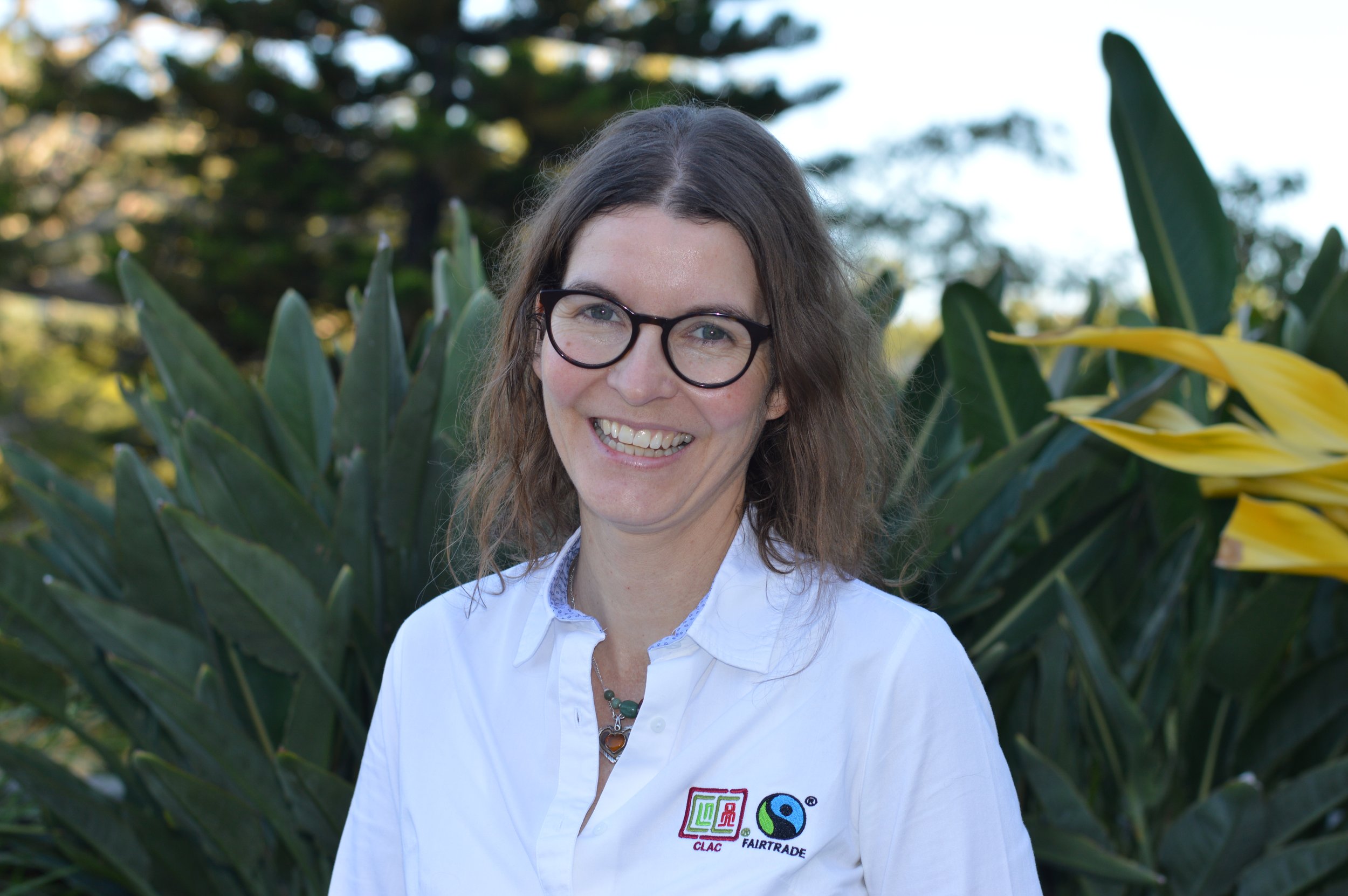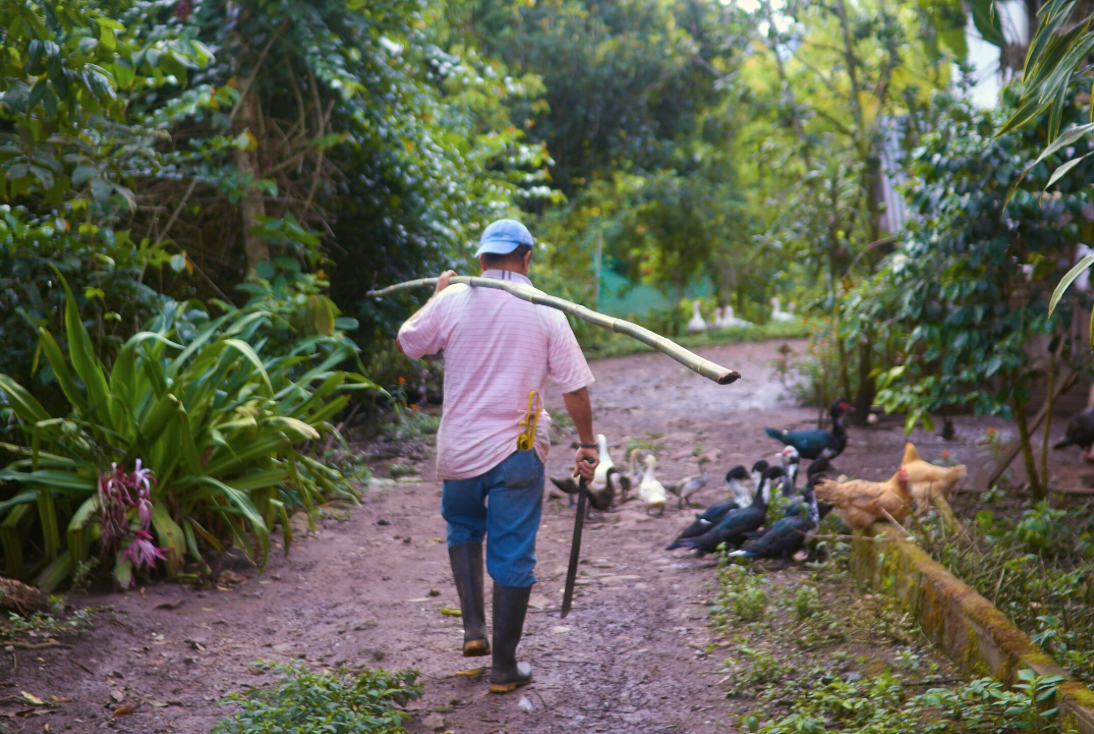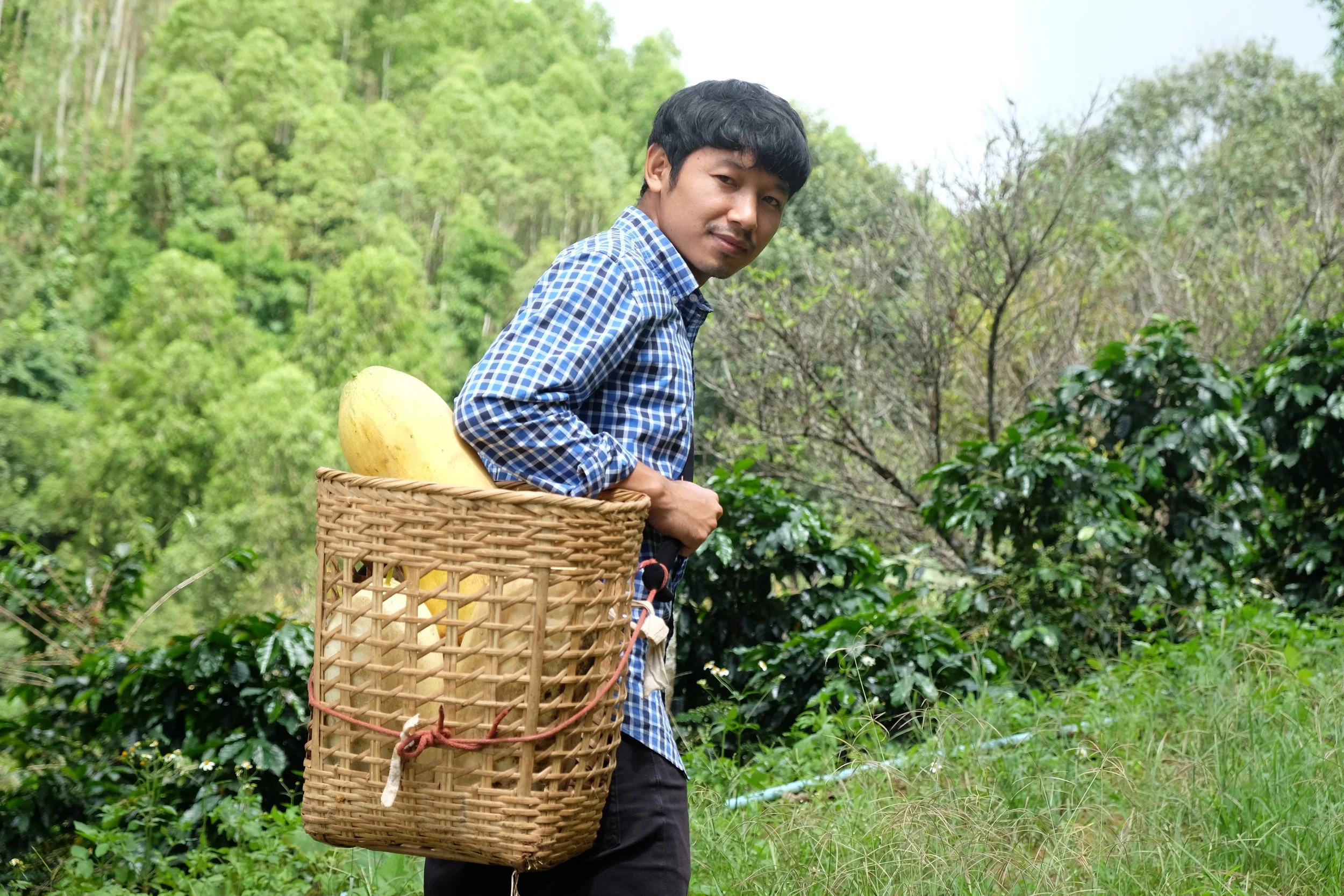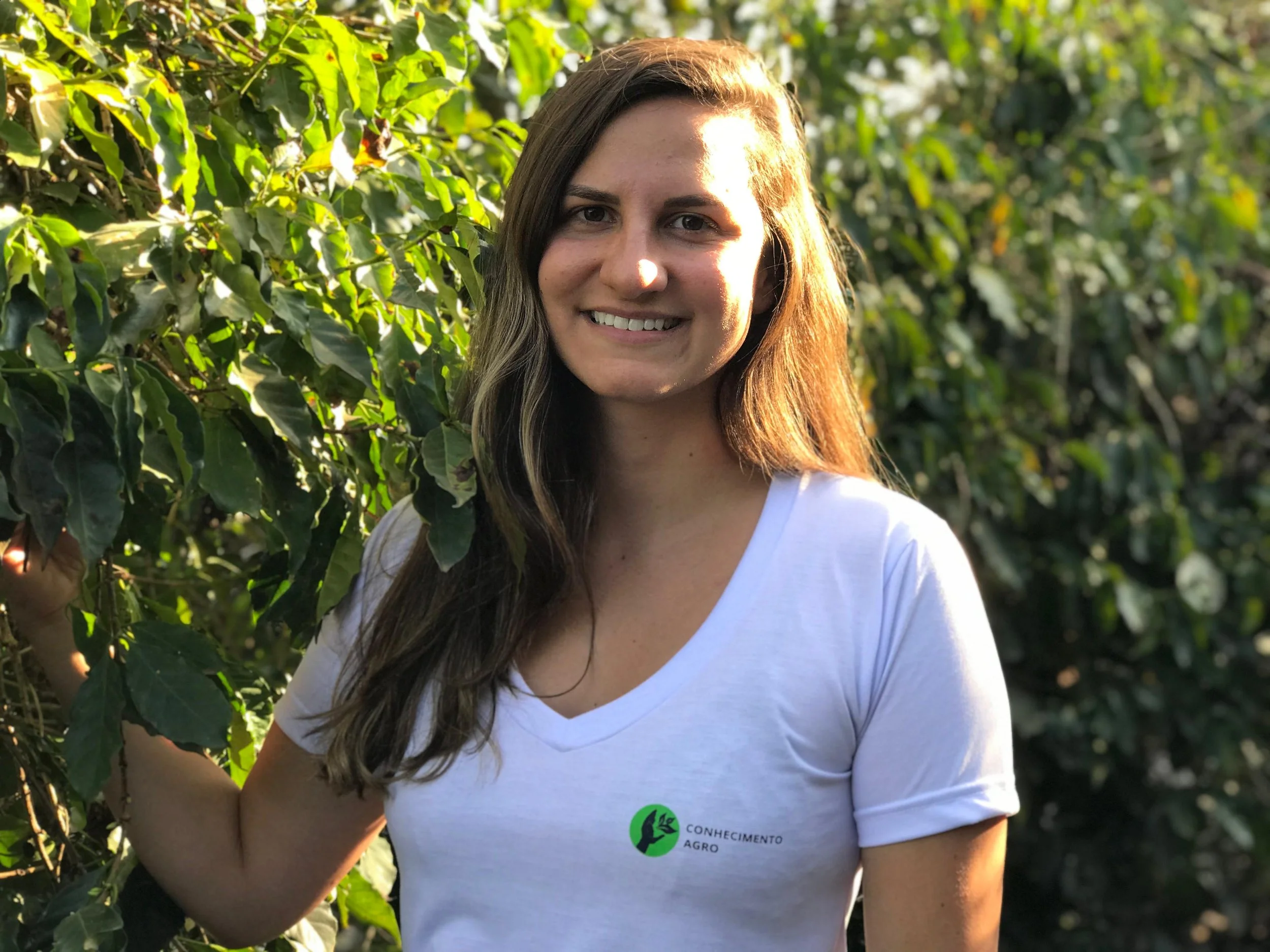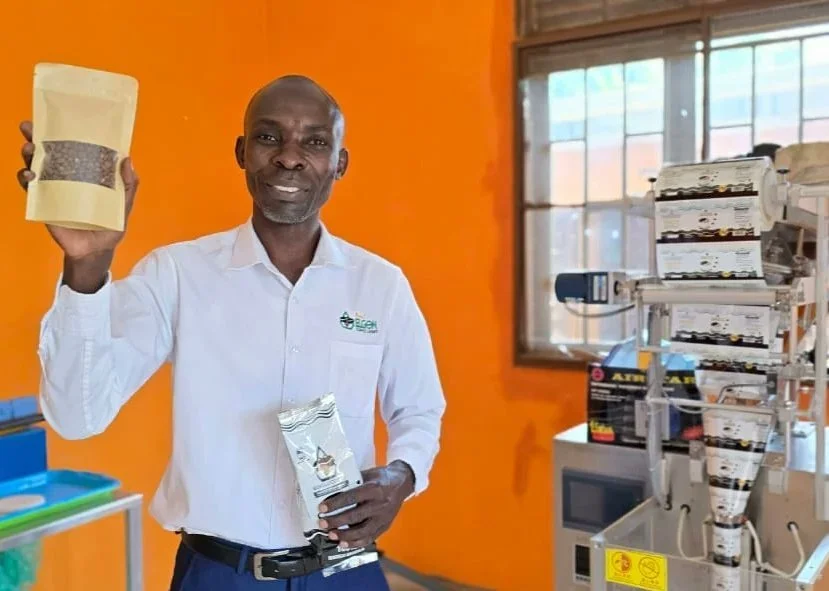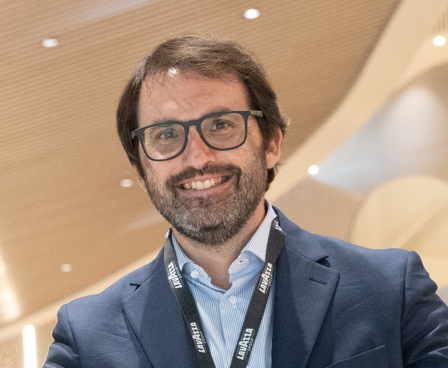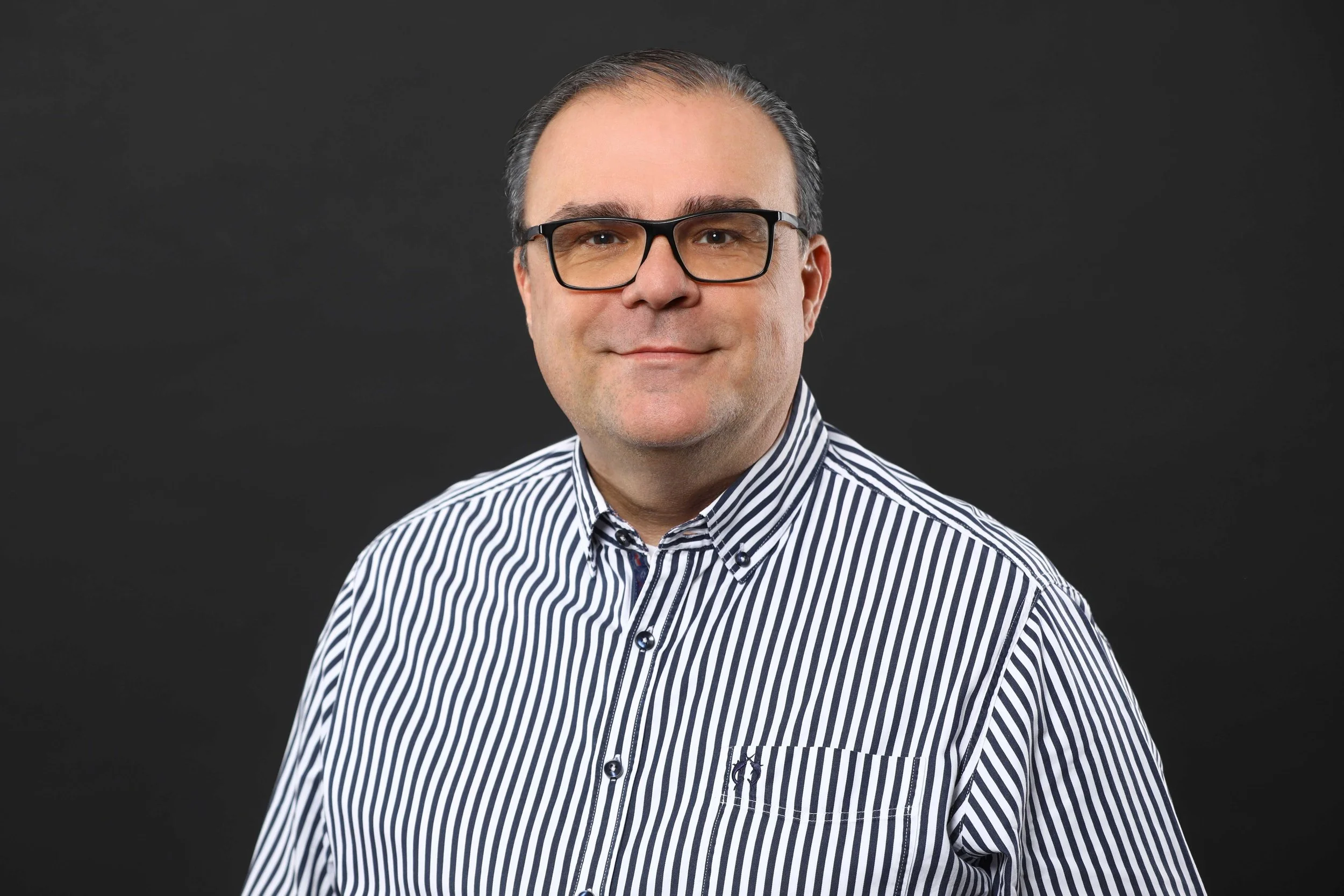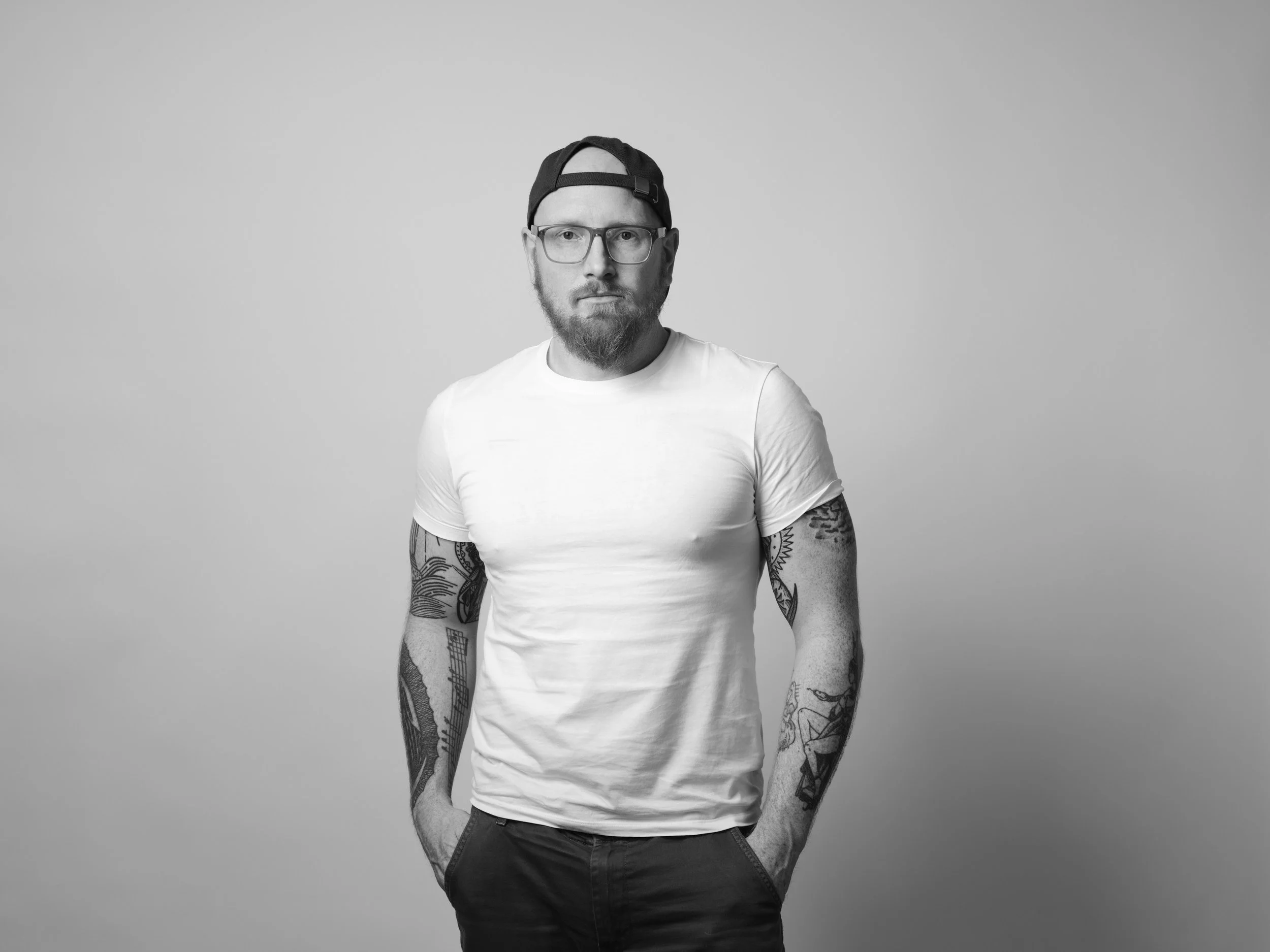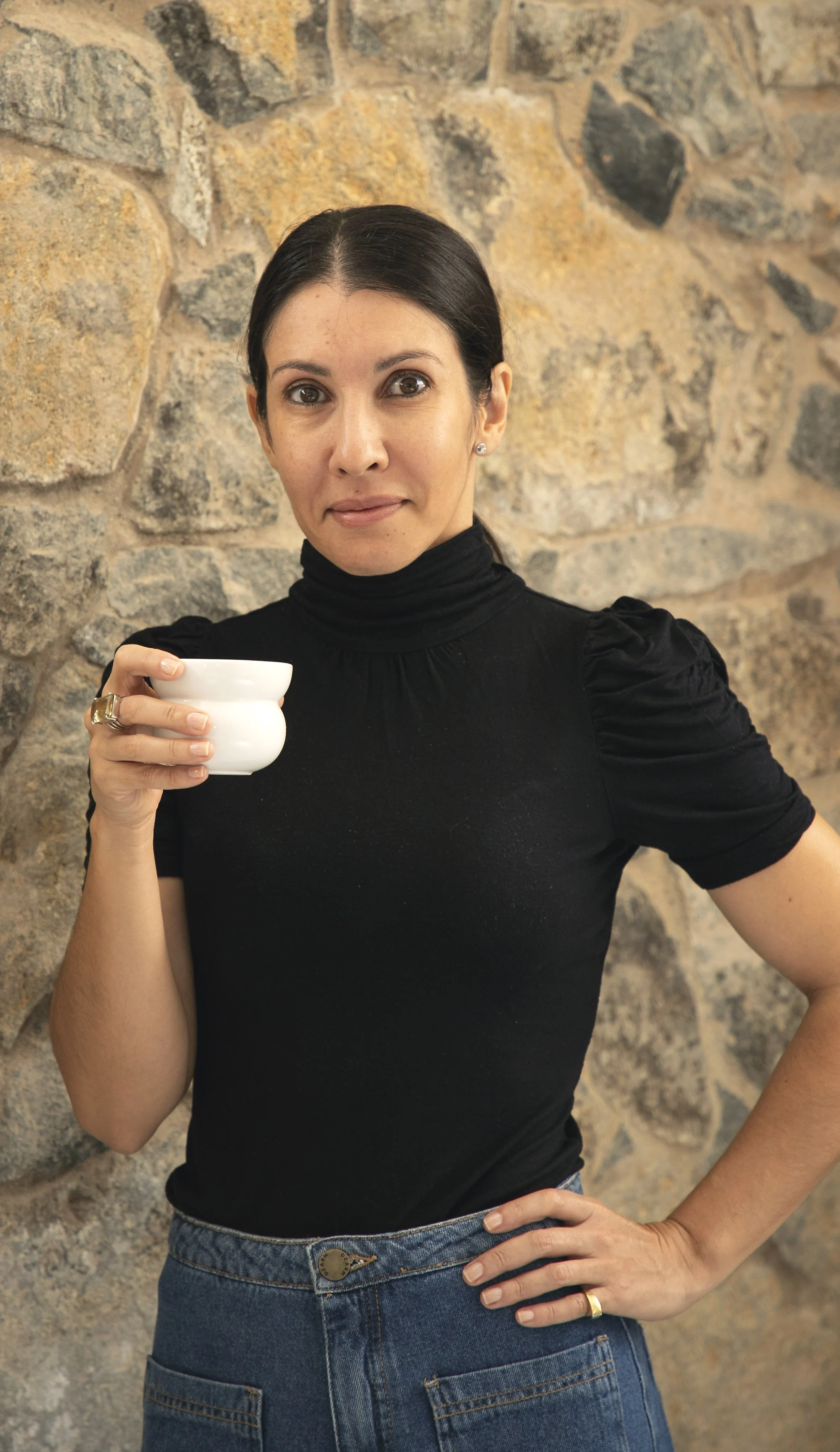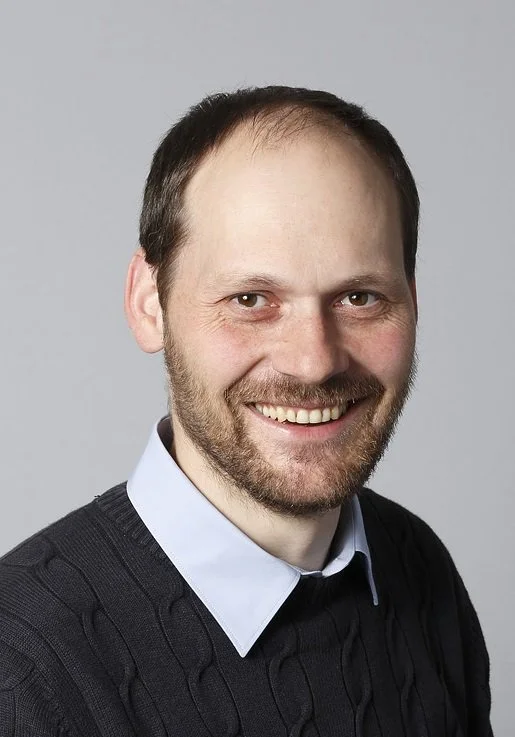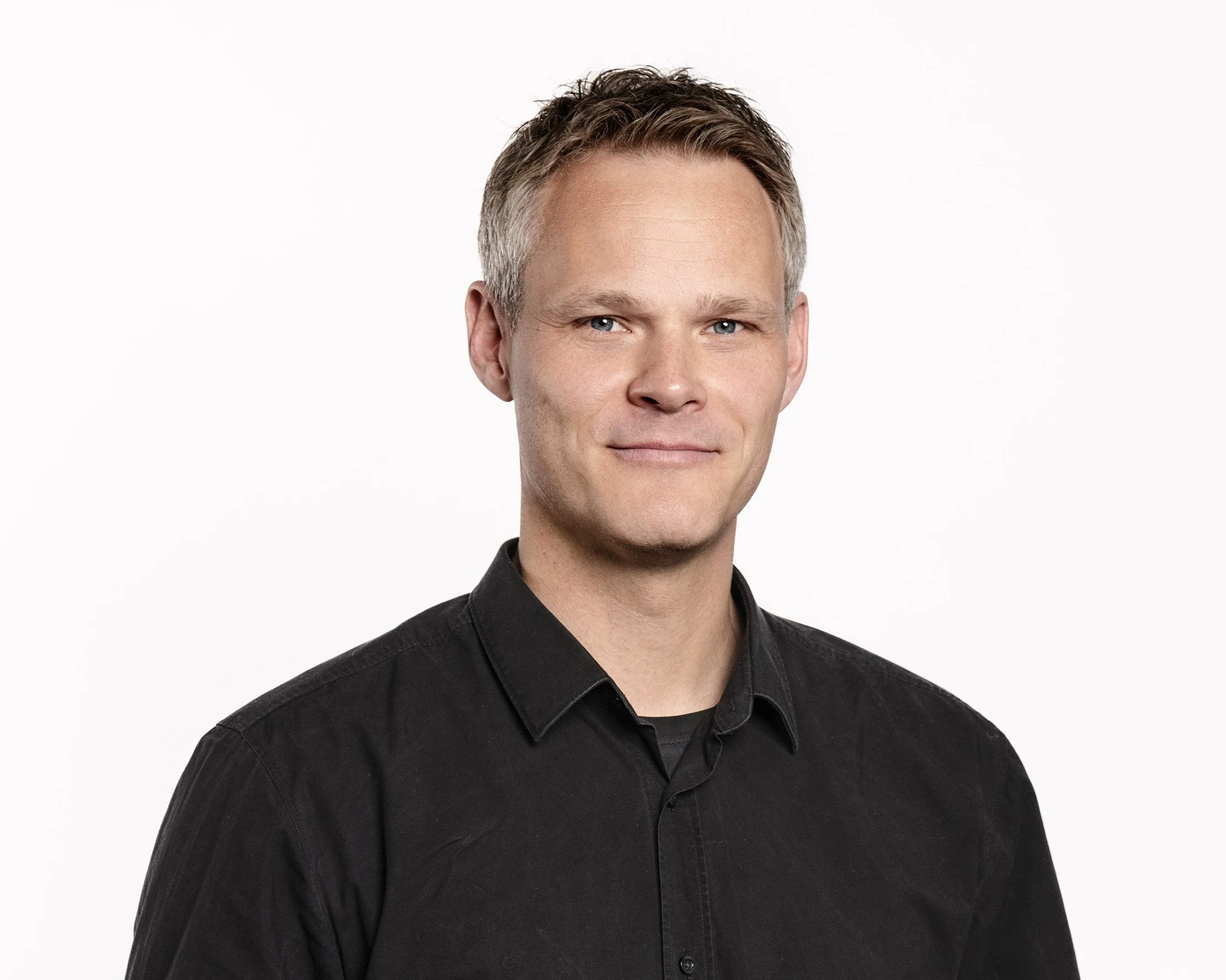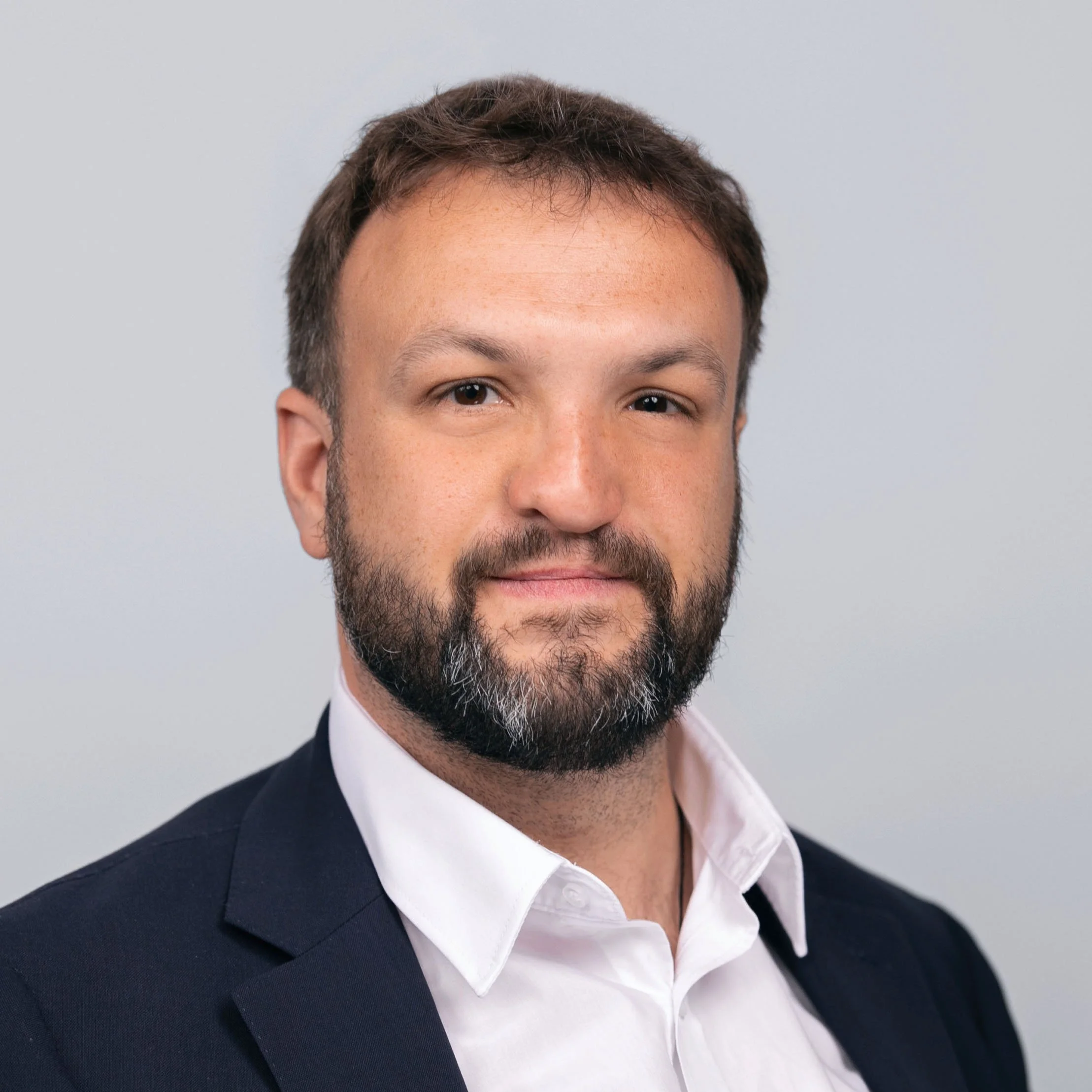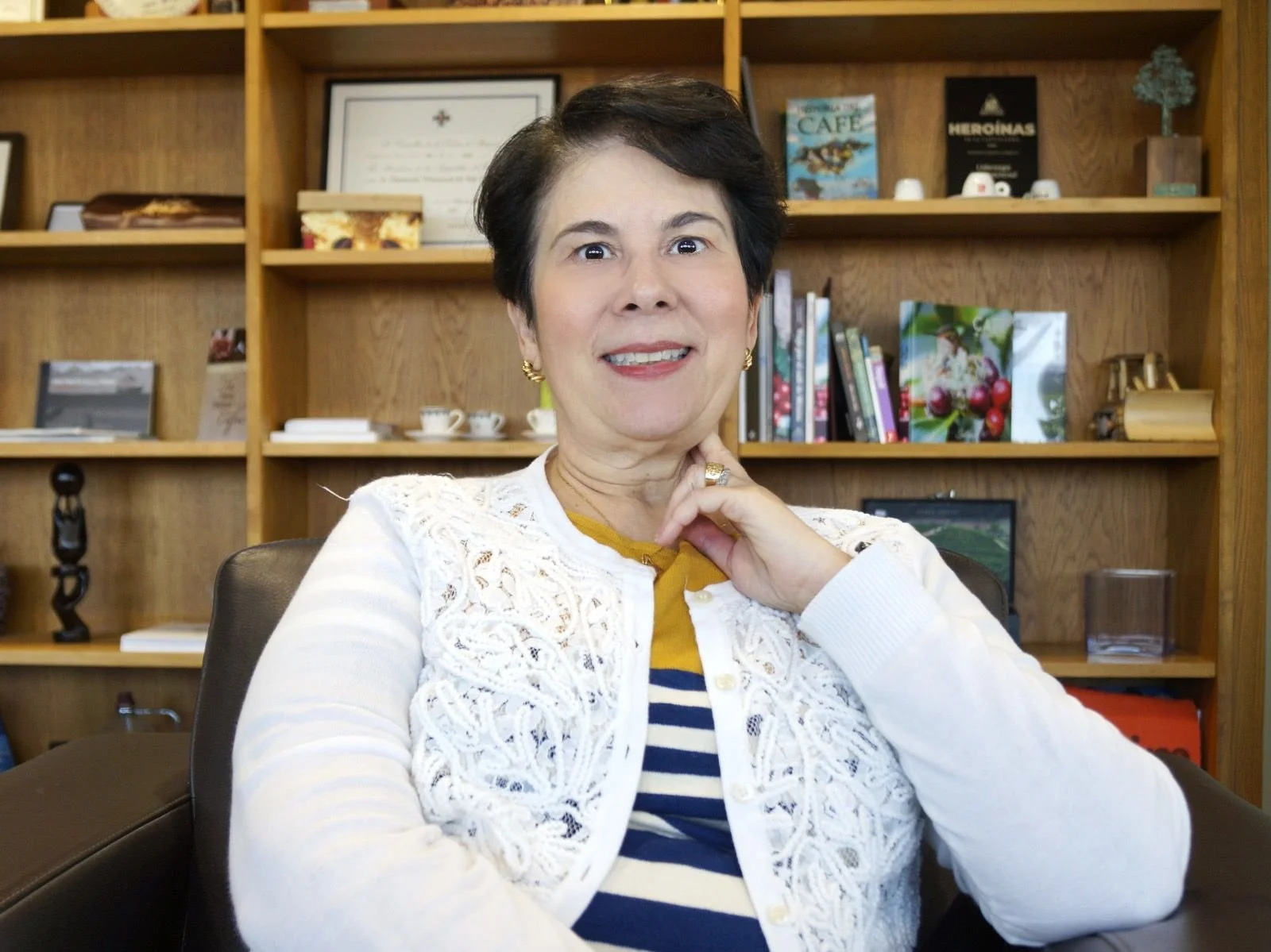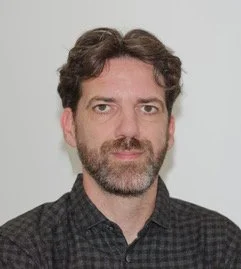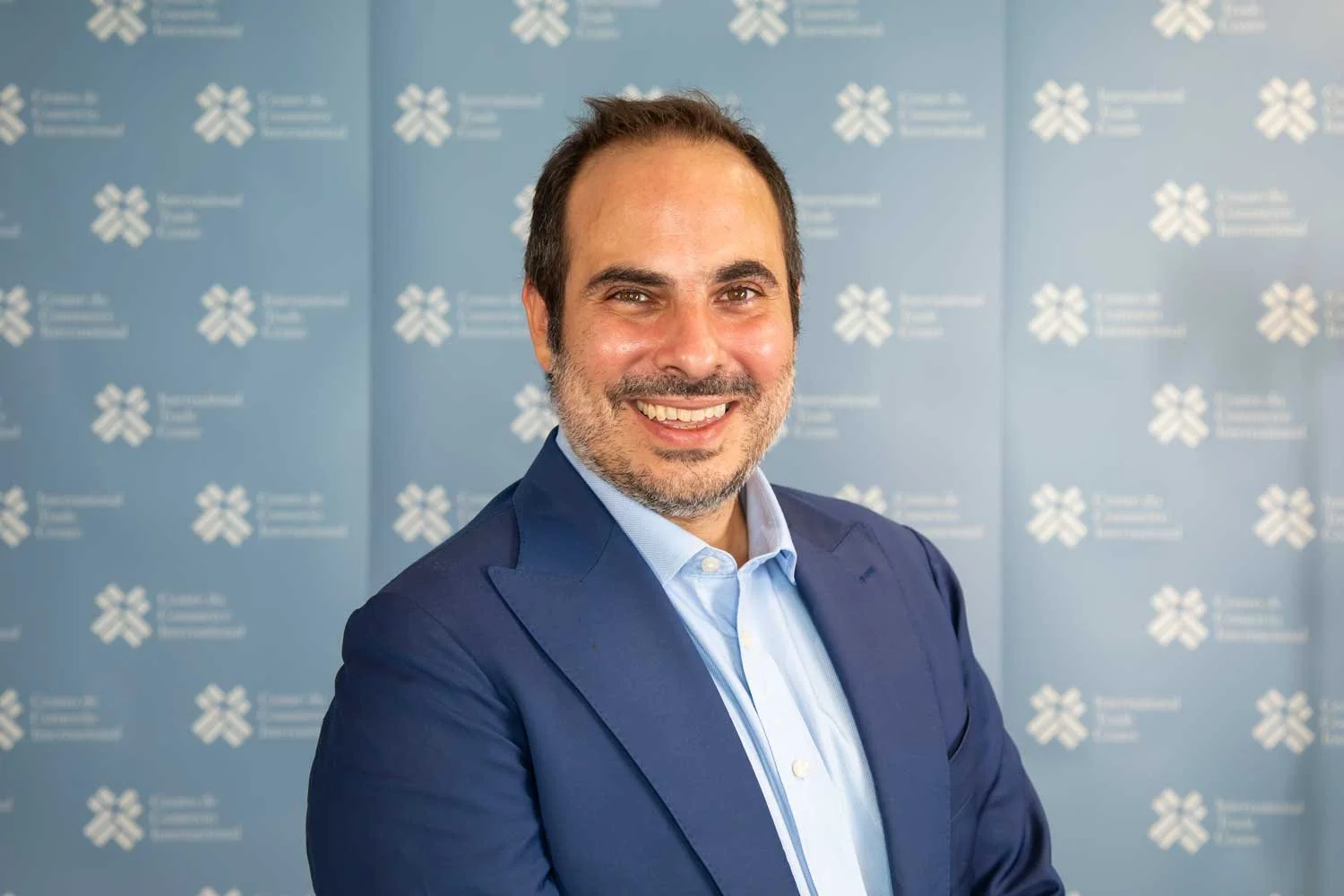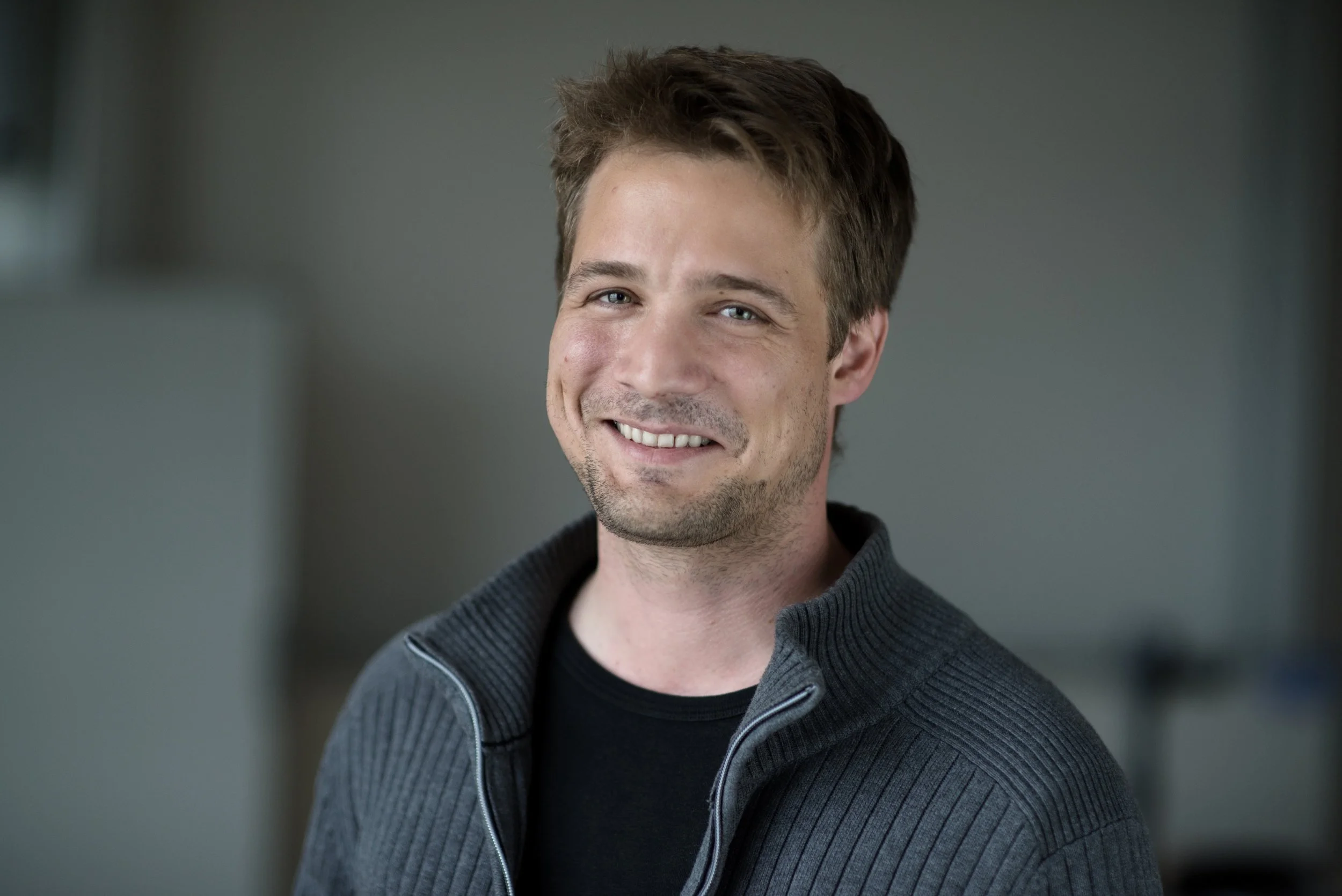
Exploring the Impact of Nitrogen Injection on Cold Brew Quality: Extraction Levels, Caffeine, and Chlorogenic Acid Concentration
Lecture Description
Cold brew coffee has rapidly gained popularity, presenting new opportunities for roasters and coffee enterprises. However, producing it consistently and at scale introduces unique challenges uncommon to traditional specialty coffee practices. This presentation offers an in-depth exploration of these challenges and innovative solutions for cold brew production. Attendees will gain insights into key parameters such as Total Dissolved Solids (TDS), caffeine, and chlorogenic acid (CGA) concentrations. We will share findings on how nitrogen injection—both in gaseous and liquid states—impacts these critical variables. Additionally, the presentation will cover systematic approaches for long-term monitoring, including microbiological analysis to mitigate biological spoilage risks. By sharing our journey and strategies for improving quality control in cold brew production, we aim to empower coffee professionals to embrace this growing market segment confidently. This session will highlight the importance of scientific precision in driving consistency, quality, and innovation in cold brew preparation.
Learning Objective:
Understand innovative measurement techniques for analyzing coffee and beverages, with a focus on cold brew quality control.
Learn the critical role of monitoring extraction parameters—such as TDS, caffeine, and chlorogenic acid concentrations—in achieving consistent cold brew production.
Explore a real-world case study on nitrogen injection and its impact on cold brew extraction levels and quality, including practical challenges and solutions.
Date: Saturday, June 28, 2025
Time: 3:15 - 4:15 PM
Location: Lecture Room V
This lecture is free to attend with a World of Coffee entry badge. Register to attend World of Coffee Geneva here.
Lecturers / Presenters
Francisco Velazquez (he/him)
Scientific Coordination,Camel Step Co.
Dr. Francisco Velazquez is an experienced biophysical chemist with deep knowledge of the molecular processes in biological systems such as coffee. Within the work at Camel Step Co., we are combining different analytical techniques with standard “coffee lab” quality analysis protocols to leverage a more holistic approach towards coffee science during roasting, at the brew bar and beyond.
Toward Equitable Compliance: Making mandatory human rights and environmental due diligence work for all
Lecture Description
In the rapidly evolving landscape of global value chains and international trade, the concept of mandatory Human Rights and Environmental Due Diligence (mHREDD) has become pivotal for coffee businesses through the value chain. Coffee producers are increasingly required to comply with and implement a range of sustainability requirements to access target markets and attract investments. In-scope companies for the Corporate Sustainability Due Diligence Directive (CSDDD) and the European Union Deforestation Regulation (EUDR) must assess and report not only on how sustainability issues affect their financial health, but also on how their business activities impact the world around them.
Due diligence measures can help ensure corporate accountability, safeguard human rights, and protect the environment. Yet, these measures can be challenging to meet - especially for organizations and businesses in coffee producing countries. It is important to ensure that amidst the rapid developments in linking trade to sustainability considerations, organizations, workers and coffee producers are not left behind.
This diverse panel of established market players throughout the coffee value chain will explore lessons learned from the real cases of accompanying measures implemented in their supply chains to help MSMEs and producers to mitigate associated risks and challenges of mHREDD, while capitalizing on market and income opportunities.
Learning Objectives:
1. Learn how accompanying measures for due diligence can support and strengthen sustainability of supply chains, from producers to in-scope companies
2. Hear diverse perspectives and lessons-learned from the implementation of HREDD, using a participatory and market-based approach.
3. Understand how coffee producer organizations, traders, and roasters can reduce human rights and environmental degradation throughout their supply chains
4. Evaluate the market value and competitiveness opportunities for companies to integrate due diligence into their operations holistically
Date: Saturday, June 28, 2025
Time: 2:00- 3:00 PM
Location: Lecture Room W
This lecture is free to attend with a World of Coffee entry badge. Register to attend World of Coffee Geneva here.
Moderator
Brendah Akankunda (she/her)
National Coordinator, Uganda, International Trade Centre (ITC)
Ms. Brendah Akankunda is a Trade policy analyst with a legal background currently serving as the National Coordinator of the International Trade Center (ITC) on Responsible Business Conduct work in Uganda implemented under the ITC Alliance for Action.
ITC is a joint agency of the United Nations (UN) and the World Trade Organization (WTO)
Panelists
Mr Kenneth Barigye (he/him)
Managing Director, Mountain Harvest, Uganda
Kenneth Barigye is the Managing Director of Mountain Harvest a coffee company he founded in 2017 to specialize in high quality specialty coffee.
Mountain Harvest challenges the status quo of Uganda’s coffee production where smallholder farmers were producing coffee at a loss and focuses on building a model that improves the quality of life for smallholder farmers while supporting healthy and thriving natural ecosystems by emphasizing the need to boost productivity and improve profitability at the farm level.
Kenneth serves on the boards of the African Fine Coffees Association, Uganda Coffee Federation and Uganda’s National Coffee Research Institute.
Mr Dejene Dadi
General Manager, Oromia Coffee Farmers Cooperative Union (Ethiopia)
Mr Philip von der Goltz
Managing Partner, List & Beisler
Ms. Anneke Theunissen (she/her)
Director of Operations, Latin American and Caribbean Network of Fairtrade Smaller Producers and Workers (CLAC/Fairtrade)
Originally from the Netherlands, Anneke has worked with CLAC Fairtrade, the Latin American and Caribbean Network of Fairtrade Smallholder Producers and Workers, since 2013. Currently, she is Chief Operating Officer and coordinates the main operations of CLAC in the field, assisting approximately a thousand Fairtrade Producer Organizations in their process of empowerment and organizational strengthening, human rights, access to markets, inclusion, climate resilience and advocacy.
Dr. Gerald Kyaalo
Commissioner of Coffee Development, Ministry of Agriculture, Animal Industry and Fisheries (MAAIF) Uganda

The Evolution of Coffee Culture in Ukraine: Challenges, Adaptation, and Future Prospects
Lecture Description
Prerequisites and Development Until 2022
Growth of coffee culture in Ukraine since the 2010s
Development of the specialty segment, local roasting, and competitions
Challenges After the Full-Scale Invasion
Closure and relocation of coffee shops and production facilities due to active hostilities
Problems with logistics and raw material supply
Job losses in the HoReCa sector
Business Adaptation and New Formats
Volunteer initiatives supporting civilians and the military
Popularization of filter coffee and drip bags
The Role of Coffee in Volunteering and Supporting the Army
Coffee businesses donating to the Armed Forces of Ukraine
Launch of charitable coffee initiatives
Coffee as an element of morale support for both civilians and the military
Changes in Ukrainian Consumer Habits
Increased interest in home brewing and alternative methods
Growing demand for Ukrainian-roasted coffee
Shift towards minimalism and prioritization of quality over quantity
The Future of Ukraine’s Coffee Culture
Post-war recovery: new formats and integration of global trends
International recognition of the Ukrainian coffee market
The impact of war on the identity of Ukraine’s coffee scene
Learning Objective:
Attendees will gain insights into how Ukraine’s coffee culture has evolved and adapted during the full-scale war. Specifically, they will learn about:
Impact of the War– The challenges faced by coffee businesses, including supply chain disruptions and economic struggles.
Adaptation and Innovation – How businesses have adjusted, from volunteer-driven initiatives to changes in consumer preferences.
Coffee and Resilience– The role of coffee in supporting the military, volunteers, and civilians during wartime.
Shifting Consumer Habits – The rise of home brewing, demand for local roasters, and a focus on quality over quantity.
Future Prospects – How the war is shaping the long-term identity and international reputation of Ukraine’s coffee culture.
Collaboration Opportunities – How European coffee businesses can engage with Ukrainian partners, from sourcing roasted coffee to joint educational projects and events.
By the end of the presentation, attendees will understand not only the resilience of Ukraine’s coffee industry but also its potential for growth and influence in the global coffee community
Date: Saturday, June 28, 2025
Time: 2:00- 3:00 PM
Location: Lecture Room V
This lecture is free to attend with a World of Coffee entry badge. Register to attend World of Coffee Geneva here.
Lecturers / Presenters
Volodymyr Yefremov (he/him)
Head of Production, National Judge Coordinator, Idealist Coffee Co.
Volodymyr Yefremov is a Ukrainian coffee professional with over 12 years of experience in the specialty coffee industry. He is a technologist and project manager specializing in coffee production, quality control, and roasting. As the Judge Coordinator for the SCA Ukraine Chapter, he plays a key role in developing national championships and raising professional standards. Volodymyr’s expertise spans the entire coffee chain. After losing a production facility in Hostomel during the war, he remains dedicated to rebuilding and representing Ukrainian coffee excellence on the global stage.

Global Trends in Specialty Coffee: How Shops Around the World Engage Consumers Through Design, Experience, and Communication
Lecture Description
Specialty coffee shops shape consumer experiences through design, storytelling, and sensory engagement. This session presents findings from a global semiotic study, where we visited specialty coffee shops across the USA, China, Latin America, and AOA to uncover key trends in consumer communication, design cues, sensory experiences, and coffee expertise.
Through real-world examples, we will explore how businesses outside Europe set new branding, customer engagement, and experiential design standards. From visual cues to in-store interactions, the session will uncover the emerging themes shaping consumer perception and purchasing behaviour, providing valuable takeaways for roasters, retailers, and café owners looking to enhance their brand presence and connect with customers in new ways. Whether you’re a barista, roaster, or café owner, this session will help you understand global specialty coffee trends and how they can be applied to your own business.
Date: Saturday, June 28, 2025
Time: 12:15 - 1:15
Location: Room V
This lecture is free to attend with a World of Coffee entry badge. Register to attend World of Coffee Geneva here.
Lecturers / Presenters
Ann Ménard, (she/her)
Global Brand Communication and Insight Manager, Nestlé Professional
Ann Ménard, Global Brand Communication and Insight Manager for Nestlé Professional, brings a wealth of expertise and passion to the world of specialty coffee. With over 20 years of experience in 360° customer and consumer insights and communication, Ann has dedicated most of her career to beverage categories.
Having grown up on a dairy farm in the USA, followed by living in Europe and working in more than forty countries across the globe, Ann's diverse background has shaped her cultural understanding and sharpened her insight lens. Her deep appreciation for applied semiotics, communication, user experience, and design fuels her drive to develop innovative tools that craft inspiring stories for both customers and consumers.
Currently based in Switzerland, Ann is responsible for global communication, identifying worldwide trends, and crafting regional consumer and customer insights. With her expertise, she actively guides the development of the innovation and beverage strategy for Nestlé Professional.
Lucia Laurent-Neva (she/her)
Semiotician, Visual Signo - UK
Lucia Laurent-Neva is a global authority on cultural intelligence, semiotics, and anthropology. She advises leading organisations on brand and communication strategy, helping them develop culturally informed approaches to business and communication. Over a career spanning more than twenty years, she has guided projects across Europe, the USA, and emerging markets in Asia, Africa, and Latin America.
Lucia is the founder of Visual Signo UK - Design & Cultural Intelligence and co-founder of Semiofest, the international conference for applied semiotics. Her expertise lies in crafting strategies for diverse audiences, particularly those in emerging economies and global cultural dynamics.

Agroforestry Coffee and Participatory Guarantee Systems Initiatives: How the Slow Food Coffee Coalition Members Build a International Network Based on Biodiversity, Transparency and Collaboration
Lecture Description
The Slow Food Coffee Coalition is a global network of coffee producers, roasters, and activists committed to promoting sustainable and ethical coffee production. As part of the Slow Food movement, the Coffee Coalition focuses on agroforestry and agroecological practices, working to protect biodiversity, enhance environmental sustainability, and support small-scale farmers. By adopting Participatory Guarantee Systems (PGS), members ensure that coffee is grown and traded through transparent, community-driven processes that value local knowledge and collective decision-making. These systems allow farmers to play an active role in defining quality standards and guaranteeing the integrity of their products, creating a stronger connection between producers, roasters and consumers. A core value of the Slow Food Coffee Coalition is fostering collaboration. In this approach, roles within the network are horizontal, promoting equality, and shared responsibility among all members. This inclusive model facilitates the exchange of ideas, skills, and experiences, with the objective of strengthening the overall resilience of the coffee supply chain.
Learning Objective:
Attendees will learn about the role of collaborative networks like the Slow Food Coffee Coalition in promoting sustainable and ethical coffee production, and how these networks foster collaboration, mutual respect, and shared responsibility among members.
Attendees will learn about agroforestry practices and their importance in promoting biodiversity and environmental sustainability within coffee production.
Attendees will learn about Participatory Guarantee Systems (PGS) and how they can have a role in ensuring transparency and community-driven processes in coffee production and trade.
Date: Satarday, June 28, 2025
Time: 12:15 - 1:15 PM
Location: Lecture Room W
This lecture is free to attend with a World of Coffee entry badge. Register to attend World of Coffee Geneva here.
Lecturers / Presenters
Silva Rota (she/her)
Slow Food Coffee Coalition Coordinator, Slow Food
Silvia Rota is the co-coordinator of the Coffee Coalition at Slow Food International. She became involved with coffee through her work at Slow Food, where she contributed to the growth of the Coffee Coalition—an international network of people involved in coffee production, processing, and consumption. The Coalition shares the goal of promoting and advocating for a better, more sustainable, and fairer coffee supply chain, while also raising awareness and educating Slow Food’s audience about coffee.
Her expertise lies in community building and participatory processes, such as the development of local Participatory Guarantee Systems initiatives within coffee communities and other Slow Food groups worldwide.
Cesar Marin (he/him)
Coffee Producer, CHACRA D' DAGO/ SLOW FOOD COFFEE COALITION
Cesar Marin is the Managing Director at Chacra D' Dago based in Junin, Peru. With 15 years of experience in sustainable coffee production and innovation in the specialty coffee industry, he currently manages Chacra D' Dago and is a member of the Slow Food Coffee Coalition, a movement that seeks to create a coffee community based on the principles of biodiversity, transparency, and collaboration.
Efraín Lechuga (he/him)
Coffee Producer, La Victoria
Efraín Llechuga is the 4th generation of a coffee family producer from Puebla Mexico. He is committed to producing organic coffee of the highest quality, but always according to the principle of working with practices that help preserve the nature and positively support the local communities.
Ayu Chuepa (he/him)
Founder, Akha Ama Coffee
Beginning in 2010, Ayu Chuepa established Akha Ama Coffee as a social enterprise, in Chiang Mai, Thailand. In the same year he met James Beard awarded Chef Andy Ricker and the owner of PokPok restaurant in Portland, Oregon. Mr. Ricker introduced him to Duane Sorenson the founder of Stumptown Coffee Roasters and where he went to train for coffee roasting, coffee cupping and retail & wholesale management in 2013. In 2014, he was selected as Slow Food Delegate from Thailand and participated at Terra Madre in Turin, Italy. Since then he has been participating slow food movement and involving in Slow Food Indigenous Peoples' Network as well as Slow Food Coffee Coalition.

Global Coffee Supply Chain: Overcoming Logistics Disruptions
Lecture Description
Global coffee logistics are facing unprecedented challenges, from vessel shortages and container scarcity to port congestion and unpredictable shipping costs. These disruptions are creating significant risks for exporters, importers, and roasters, affecting supply chain efficiency and profitability.
In this session, I will provide an in-depth analysis of the current logistical bottlenecks impacting coffee shipments, with a particular focus on Brazil—one of the world's largest coffee exporters. Drawing from over a decade of experience in international coffee trade and logistics, I will explore the root causes of these disruptions, their impact on the global market, and strategies to mitigate risks.
Attendees will gain valuable insights into navigating shipping uncertainties, optimizing supply chain operations, and adapting to the evolving logistics landscape. Through real-world case studies and practical solutions, this lecture will equip coffee professionals with the knowledge needed to manage logistics effectively in an increasingly volatile market.
Learning Objective:
Understand key logistical challenges affecting coffee exports, including vessel and container shortages, port congestion, and shipment delays.
Analyze the impact of global supply chain disruptions on coffee pricing, delivery schedules, and supplier-buyer relationships.
Explore risk mitigation strategies to navigate logistical uncertainties, from alternative shipping routes to improved contract structuring.
Gain practical insights from real-world case studies on how exporters and roasters are adapting to these challenges.
Date: Saturday, June 28, 2025
Time: 11:00 AM - 12:00 PM
Location: Lecture Room V
This lecture is free to attend with a World of Coffee entry badge. Register to attend World of Coffee Geneva here.
Lecturers / Presenters
Brayan Cunha (he/him)
Coffee Trader and Logistics Expert, CarmoCoffees
Brayan Cunha is a coffee trader with a degree in International Trade and over 16 years of experience in coffee exports, international logistics, and supply chain management. A native Portuguese speaker, he is also fluent in English and Spanish, with knowledge of German. Brayan coordinated a Brazilian government program focused on preparing coffee producers for international markets. Currently at Carmel Coffees, he travels worldwide to coffee fairs and industry events, building strong relationships with key players and enhancing his expertise in specialty coffee markets.

Exploring Coffee Acidity: A Flavoromics Perspective
Lecture Description
Acidity is a cornerstone of coffee's flavor profile, contributing brightness and complexity to its sensory experience. Despite its importance, the specific compounds driving acidity perception remain underexplored. This lecture examines the intricate relationship between sensory perception and the chemical compounds influencing acidity in coffee. Employing a flavoromics approach, the study integrates sensory evaluations by coffee professionals with advanced chemical profiling techniques. By analyzing coffee samples from diverse origins and processing methods, the research aims to discover how some specific compounds shape the sensory perception of acidity. This session serves as groundwork for a deeper understanding of acidity's role in coffee, emphasizing its importance for improving flavor and consumer satisfaction.
Learning Objective:
The audience will learn the chemical foundations of coffee acidity and its sensory implications.
The audience will understand how a flavoromics approach integrates chemical and sensory data to explain acidity.
Date: Saturday, June 28, 2025
Time: 11:00 AM - 12:00 PM
Location: Lecture Room W
This lecture is free to attend with a World of Coffee entry badge. Register to attend World of Coffee Geneva here.
Lecturers / Presenters
Agnese Santanatoglia (she/her)
PhD Coffee Chemistry, University of Camerino - Simonelli Group
Agnese recently earned her Ph.D. in Analytical Food Chemistry (Coffee Chemistry) at the International School of Advanced Studies. Her research, part of the Research and Innovation Coffee Hub project, was a collaboration between the University of Camerino and Simonelli Group, focused on advancing coffee science. She holds a Master’s degree in Industrial Pharmacy and a Second-Level Master’s in Nutrigenomics. As a visiting Ph.D. student at Ohio State University’s Flavor Research and Education Center, she studied coffee acidity. Her work explores the chemical characterization of coffee brewing methods, analyzing volatile and non-volatile compounds. She has published in high-impact journals, contributes to international conferences, and collaborates with academic and industrial partners.

The Great Coffee Price Breakaway
Lecture Description
Beginning in 2024, a new market environment has changed the playing field for all coffee participants in the coffee supply chain and for consumers as well: inverted markets, differentials, shipping logistics, cash flows, consumer demand, and last but not least, adverse climate effects, all managed to bring the new reality to market participants.
This lecture will delve into all the variables that have affected the coffee market over the past year and will identify the factors that stakeholders in the supply chain will need to negotiate going forward. The financial instruments that are used to transfer these risks to the financial markets will also be explained. The lecture will finish by presenting Stonex's Brazil Coffee harvest report and price outlook.
Date: Friday, June 27, 2025
Time: 3:15 - 4:15 PM
Location: Lecture Room V
This lecture is free to attend with a World of Coffee entry badge. Register to attend World of Coffee Geneva here.
Lecturers / Presenters
Albert Scalla (he/him)
Sr. Vice President of Trading, STONEX
Albert Scalla, Senior Vice President of Trading at StoneX, has combined his considerable knowledge of the commodity markets with his expertise in implementing price risk management strategies using Futures, Options and Structured Products in the commodity markets.
Albert joined Hencorp Futures, later acquired by StoneX, 32 years ago, where he has been an important pillar for the development of Commodity Price Risk Management programs from producers to final consumers in the Coffee, Cocoa and Palm Oil markets.
In these products, Albert has been invited as a guest speaker to several national and international conferences to speak on Price Risk Management for participants in both producing and consuming countries of the supply chain.
Albert received a bachelor’s degree in Business Administration with a specialty in
Finance from Florida International University.

Carbon Footprint in Brazilian Coffee: Measurement and Reduction Strategies
Lecture Description
This presentation explores the practical steps taken by Sancoffee, a Brazilian specialty coffee cooperative and the SCA Sustainability Award Winner 2024, to measure and reduce the carbon footprint of coffee production. Drawing from real-world data and extensive field experience, Ana Claudia Silva will discuss how Sancoffee has developed methodologies for carbon measurement, implemented sustainable practices, and fostered a commitment to environmental responsibility among its member farms.
The session will delve into the cooperative’s efforts to build a carbon-neutral value chain through strategies such as composting, use of cover crops, renewable energy adoption, and the recovery of degraded areas. Attendees will also gain insights into the collaborative process that integrates farmers, cooperatives, and the broader coffee supply chain, creating actionable solutions to address climate challenges while maintaining high coffee quality.
Date: Friday June 27, 2025
Time: 3:15 - 4:15
Location: Room W
This lecture is free to attend with a World of Coffee entry badge. Register to attend World of Coffee Geneva here.
Lecturers / Presenters
Ana Claudia Silva (she/her)
Head of Impact, Sancoffee
Ana Claudia Silva is the Head of Impact at Sancoffee, a Brazilian specialty coffee cooperative with a strong focus on sustainability and community development. She has been deeply involved in initiatives to measure and reduce carbon footprints in coffee production, helping Sancoffee become acknowledged as a carbon-neutral coffee cooperative.
Ana leads key projects like the Bio Recovery initiative, focused on land restoration, and the Nascentes Women Coffee program, which supports female producers in improving coffee quality and achieving greater independence. Her work emphasizes practical approaches to sustainability, combining environmental leadership with tangible benefits for farmers and their communities.

The Role of Women in the Sustainable Development of the Coffee Industry, the Case of Rebuild Women's Hope Cooperative in the DRCongo
Lecture Description
Rebuild Women’s Hope is a cooperative led by women coffee farmers located on the large, remote island of Idjwi in Lake Kivu in the east of the Democratic Republic of Congo. Our mission is to produce specialty quality coffee whilst empowering women and raising the standard of living of our members.
For generations, farmers on Idjwi have largely depended on the coffee they grow. But before Rebuild Women’s Hope (RWH) was founded they had no way of processing their coffee to a high standard and nowhere to sell it apart from to smugglers, who took it across the lake to nearby Rwanda.
While women in Congo do much of the labor involved in growing and harvesting coffee on their family farms, traditionally it is their husbands who are in charge when it comes to selling the produce and making business decisions. The contribution of women is largely not recognized in society and women are widely seen as being incapable of dignified work that contributes to the needs of their families and communities.
At RWH, women are at the center of decision-making. We work to create a spirit of entrepreneurship and self-management among our women members in order to raise the standard of living in our communities. We believe that a community where women are empowered is a thriving community.
Learning Objective:
The first objective is to raise awareness of the role and contribution of women in the development of the coffee industry worldwide.
Second objective is how leaders in the coffee industry should contribute to fight against gender in the coffee industry for a sustainable development.
Date: Friday, June 27, 2025
Time: 2:00- 3:00 PM
Location: Lecture Room W
This lecture is free to attend with a World of Coffee entry badge. Register to attend World of Coffee Geneva here.
Lecturers / Presenters
KEIKINA BUDZA MARCELLINE (she/her)
PRESIDENT OF THE BOARD OF THE COOPERATIVE, REBUILD WOMEN'S HOPE
Marcelline Budza grew up in Bukavu on the south shore of Lake Kivu during one of the most violent periods in the history of the Democratic Republic of Congo (DRC). The youngest of four daughters, her father abandoned the family when she was three. Inspired by her mother’s bravery in raising her and her sisters and sending them to school using the money she earned from selling coffee and pineapples, Marcelline was motivated from a young age to do something to change the situation for women and girls in eastern DRC. After studying agronomy at the Evangelical University in Africa, Marcelline founded Rebuild Women’s Hope in 2013. Today, Marcelline is the president of the cooperative. Marceline Budza,
the founder of Rebuild Women’s Hope Cooperative, a Congolese agricultural cooperative set up in 2013 which uses the production and export of coffee as vehicle for women’s socio-economic development and empowerment. It is located on the island of Idjwi in South Kivu province, Eastern Congo. Marcelline's tireless pursuit of human rights for the women of Idjwi Island through Rebuild Women's Hope has been recognised by numerous prestigious international awards.

An exploration of coffee brewing habits through netnography and means end chain analysis
Lecture Description
Marketers have realized the value of researching human motivation in consumer behavior. We combined Netnography – the online observation of the consumer, and Means End Chain Analysis (MECA) to research the home brewing habits of coffee consumers. Trained teams of 2 or 3 observers/interviewers observed 30 coffee consumers brewing their coffee at home using their customary or preferred method (i.e., drip brew, pour over, Aeropress, French press, espresso, capsules, etc.). They then interviewed them about their brewing method and habits using a laddering interview technique that opened with the question “Why do you use this method to brew your coffee?”, and followed with a series of “Why is it important to you that…?” questions.
Netnography accessed critical innovation levers such as triggers of use (i.e., to wake up or as a break in the day), user customization (i.e., light or medium roasts preferred for full flavor expression and less bitterness; type of sweetener or creamer added if any), interactions with the user’s environment (i.e., adjusting to local water composition), intangible attributes of the method (i.e., comfort from the brewed cup), and most importantly for breakthrough innovation - unarticulated user needs.
MECA produced a hierarchical value map that included caffeine, convenience, flavor, less wasteful, personalized, social drinking, and cheaper as the main attributes associated with consumers’ brewing methods. Consequences of those methods were energy, saving time in the morning, pleasant aromatic properties, saving resources, controlling taste, desire to fit in, and saving money. In turn, MECA linked those consequences to such personal values as academic and career performance, enhanced productivity, enjoyment, environmental ethics, health consciousness, belonging, and financial responsibility.
This information can be used by coffee companies and manufacturers of coffee brewing equipment to optimize their offerings and design new brewing experiences.
Learning Objective:
Attendees will get unique insights into the motivations of consumers when brewing coffee at home across a range of brewing methods.
They will learn about innovative qualitative consumer research methods such as netnography (online observation of the consumer) and means end chain analysis of laddering interviews, and how those techniques can be used for product or service optimization and breakthrough innovation.
Date: Friday, June 27, 2025
Time: 2:00 - 3:00 PM
Location: Lecture Room V
This lecture is free to attend with a World of Coffee entry badge. Register to attend World of Coffee Geneva here.
Lecturers / Presenters
Jean-Xavier Guinard (he/him)
Porfessor, University of California, Davis
Jean-Xavier Guinard is Professor of Sensory Science and Co-Director of the Coffee Center at the University of California, Davis. His research focuses on sensory and culinary strategies for dietary change and the optimization of the sensory quality and consumer acceptance of foods, beverages (including coffee!) and other consumer products. He was an architect of the Coffee Taster’s Flavor Wheel, the Coffee Sensory and Consumer Brewing Control Chart, and Coffee Cuality™. Jean-Xavier has authored over 120 peer-reviewed publications. He teaches undergraduate, graduate and lifelong learning courses at UC Davis and consults for food and beverage companies and consumer agencies worldwide.

Building Customer Loyalty; Lessons From Scaling Nairobi's First Specialty Coffee Subscription Service
Lecture Description
Despite being the vibrant capital of a coffee-producing country, Nairobi’s specialty coffee market a tough nut to crack; limited demand, a hesitant consumer base, and deep-rooted challenges. This session draws on the journey of a woman-owned business that launched Nairobi’s first specialty coffee subscription, providing actionable insights for navigating similar obstacles.
Discover how to create offerings that connect with local consumers, build demand in an emerging market, and harness the power of community and storytelling. Learn the unique challenges of growing a specialty coffee market and the surprising parallels—and differences—between roasters at origin and other markets.
We’ll also unpack the game-changing potential of subscription services: how to position, grow, and engage a loyal customer base using tech to streamline operations, build trust, and turn casual drinkers into devoted brand advocates. Gain insights on bridging the gap between consumers and producers, and learn how to thrive in markets with untapped potential.
Learning Objective:
Cracking the Code of Specialty Coffee Markets: Attendees will dive deep into the real challenges of growing a specialty coffee market in untapped regions. Understand the unique dynamics at origin, and discover how roasters in sourcing countries face both shared and distinct hurdles compared to other markets.
Creating Demand from Scratch: We'll uncover the secrets to igniting demand in a new market. Learn what truly works—and what doesn’t—through the power of storytelling and community-building to turn coffee skeptics into loyal advocates.
The Subscription Superpower: See how the subscription model can transform your business. Position it right, grow a loyal fanbase, and turn casual drinkers into die-hard supporters by delivering consistent value and connection.
Tech-Driven Customer Connection: Learn how to customise technology to deliver perceived value to your customers, streamline operational tasks at the roastery, and deepen your understanding of your audience to transform them into passionate brand evangelists.
Date: Friday, June 27, 2025
Time: 12:15 - 1:15 PM
Location: Lecture Room V
This lecture is free to attend with a World of Coffee entry badge. Register to attend World of Coffee Geneva here.
Lecturers / Presenters
Wanjiru Mari (she/her)
CEO, Coffee Lab Nairobi
Wanjiru Mari, a former research scientist with a background in particle physics, left her tech career to explore new possibilities—roasting coffee. What started as a weekend passion quickly became a full-fledged business. But while roasting came easily, the real challenge was getting local consumers to embrace premium specialty coffee.
She launched Nairobi’s first specialty coffee subscription - starting with a small network, she built a loyal community and quadrupled revenues in one year.
Now, armed with passion and lived experience, Wanjiru is reshaping how the world hears, values, and connects with origin stories.
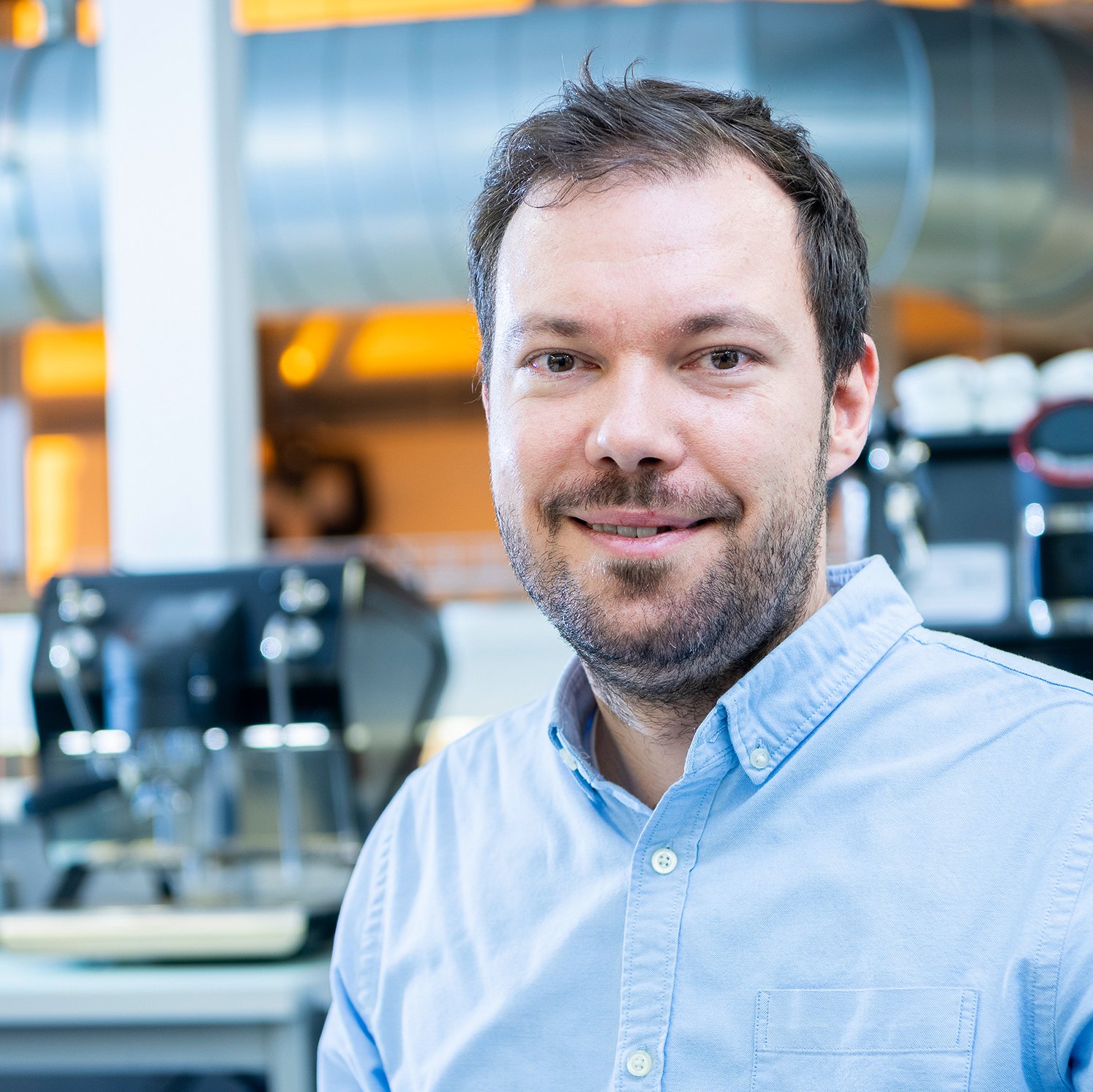
Sensory and Chemical Impact of Presence of Black and Sour Physical Defects
Lecture Description
Coffee defects present a challenge to coffee quality because a small quantity of defect beans can drastically impact the quality of a coffee. While cause and chemicals responsible for off-flavour for some defects are well known (e.g. rio and potato), some of the physical defects, such as black and sour are less studied. Their impact is assumed to be large, but few studies that exist suggest quite the contrary.
This lecture will give an overview on the science of coffee defects and will present a pre-study to a larger study with the focus on understanding physical defects. The pre-study focuses on full black and full sour defects. The methodology behind determination of sensory detection threshold and associated aroma compounds will be presented alongside intriguing results. The findings indicate that the detection threshold of a defect depends on the coffee that is being investigated.
Date: Friday June 27, 2025
Time: 12:15 - 1:15
Location: Room W
This lecture is free to attend with a World of Coffee entry badge. Register to attend World of Coffee Geneva here.
Lecturers / Presenters
Samo Smrke (he/him)
Interim Head Coffee Excellence Center, ZHAW
Samo Smrke is acting head of the Coffee Excellence Center at the Zurich University of Applied Sciences (ZHAW). He is leading coffee research projects in collaboration with industry partners and in fundamental research on various topics of coffee chemistry and coffee science. He is a teaching in the Coffee Excellence continuing education course at ZHAW, and in various other educational programs with partners of ZHAW. Samo is actively participating at coffee conferences, is one of the co-authors of the SCA Freshness and Water Handbooks, and has contributed to scientific papers and book chapters about coffee.

Hot & Cold Value Assessment: Comparative Sensory Profiling of Cold, Hot, and Gentle Brewed Coffees Using Descriptive Techniques
Lecture Description
With the purpose of providing actionable insight backed by high-quality research, this lecture proposal provides results from research of the influence of brewing methods—cold, hot, and gentle—on the sensory attributes of coffee, including sweetness, acidity, bitterness, and mouthfeel. Medium-roasted Colombian coffee, certified by the Raíz Sustainable Westrock program, was brewed under controlled conditions, varying extraction time and temperature to assess their effects on aroma, flavor, and overall taste perception. Sensory evaluations employed the Coffee Value Assessment (CVA), a cutting-edge framework recently introduced by the Specialty Coffee Association (SCA), alongside Generic Descriptive Analysis (DA), a cornerstone of sensory science was used. A panel of coffee experts, trained in the CVA protocol and sensory lexicon, conducted assessments in triplicate across four sessions. Supplemental evaluations isolated taste and tactile attributes using nose clips to minimize olfactory interference. Intensities of sensory attributes were quantified using a standardized 15-point scale, and statistical analysis revealed sensory patterns for each brewing method. The findings provide actionable research insights for coffee professionals aiming to tailor flavor profiles and cater to diverse consumer preferences. Beyond practical applications, the study underscores the evolving role of advanced sensory techniques in the coffee industry, offering a nuanced understanding of how brewing methods shape the sensory experience of coffee.
Learning Objective:
Understand and apply advanced sensory techniques: Participants will learn how to implement sensory evaluation frameworks such as the Coffee Value Assessment (CVA) and Generic Descriptive Analysis (DA) to analyze and quantify sensory attributes like sweetness, acidity, bitterness, and mouthfeel in various coffee brewing methods (cold, hot, and gentle).
Translate research findings into practical applications: Attendees will gain the ability to use research-backed insights to optimize coffee brewing methods and flavor profiles, enabling them to make informed decisions to cater to diverse consumer preferences and enhance the sensory experience of coffee
Date: Friday, June 27, 2025
Time: 11:00 AM - 12:00 PM
Location: Lecture Room W
This lecture is free to attend with a World of Coffee entry badge. Register to attend World of Coffee Geneva here.
Lecturers / Presenters
Dr. Nancy Cordoba (she/her)
Coffee Scientist
Dr. Nancy Córdoba is a coffee and flavor scientist with a distinguished academic and professional background. She holds a Ph.D. in Biosciences, specializing in coffee extraction and value addition to Colombian specialty coffee, as well as a Postdoctoral focus on Flavor Chemistry, particularly in coffee sweetness and cold brew flavor. Dr. Córdoba also holds a master's degree in Design & Process Management and a bachelor's degree in engineering. Her expertise spans coffee extraction techniques, sensory science, and food processing. In her role as Principal Scientist at Westrock Coffee, she leads R&D in coffee and liquid extracts, specializing in chemical analysis, sensory evaluation, and process engineering. Her work merges scientific theory with real-world applications to create premium coffee beverages and empower professionals to craft tailored coffee experiences.

Staying Ahead of the Curve: Leveraging Coffee Industry Trends for Success
Lecture Description
Recognizing and adapting to changing consumer preferences and habits can unlock new opportunities for revenue growth and increased market share. With numerous emerging trends, it can be difficult to determine which trends to embrace and which to skip. Strategic analysis of your business can help clarify objectives, effectively meeting expansion goals and highlighting the revenue streams with the greatest potential. Assessing whether alternative revenue streams are beneficial can significantly shape your forward-looking strategy.
Combining traditional income sources with alternative revenue streams often reveals new growth opportunities. By diversifying through new product offerings, e-commerce, digital products, or education, businesses can establish a resilient financial foundation to succeed in the face of market fluctuations. This approach not only provides a buffer against economic uncertainties but also fosters innovation, ensuring long-term sustainable growth.
This lecture will:
Guide participants to identify viable alternative revenue sources and establish new areas of economic growth.
Illuminate the strategic analysis process to clarify expansion objectives and capitalize on high-impact revenue streams.
Explore the integration of traditional income soures with broader-reaching consumer markets such as e-commerce, digital products, and online education.
Demonstrate how to determine whether additional revenue streams will profit the organization or detract from the core business.
Learning Objectives
Understand and leverage emerging trends in the coffee industry to drive growth based on your current business.
Anayze real-world case studies of coffee-related businesses to learn from both successful and unsuccessful strategies, gaining insights aligning trends with your company.
How to use data and insights from your current operation to help determine which new opportunities are right for you.
Apply a practical framework for strategic analysis that will enable informed decisions on when to diversify revenue streams and how to maximize profitability while staying true to brand values.
Date: Friday, June 27, 2025
Time: 11:00 AM - 12:00 PM
Location: Lecture Room V
This lecture is free to attend with a World of Coffee entry badge. Register to attend World of Coffee Geneva here.
Lecturers / Presenters
Chris Legler (he/him)
CEO, Axios Growth Consultants
Chris Legler, the founder and CEO of Axios Growth Consultants, specializes in empowering businesses to thrive amid economic uncertainty. With 30+ years of experience at industry giants like Espresso Supply, Bonavita, Starbucks, and Sony, Chris brings unparalleled insight into navigating complex markets and fueling growth.
A former coffee roastery owner, he intimately understands the opportunities and challenges facing small business owners. In addition to being a Certified Management Consultant, Chris holds an MBA from Seattle University, and a certificate in Circular Economy and Sustainable Strategies from Cambridge.
Chris is passionate about helping companies innovate, adapt, and unlock their full potential.
Circular Economy and Regenerative Agriculture: Toward Living and Prosperous Incomes
Circular Economy and Regenerative Agriculture: Toward Living and Prosperous Incomes
The global coffee industry generates over 40 million tonnes of biomass annually through coffee processing. This biological material is an underutilized resource full of potential for sustainable value addition and waste reduction. By enhancing resource efficiency through circular economy and regenerative agriculture, we can create new products, improve and diversify incomes, and protect our environment.
The latest Coffee Development Report by the International Coffee Organization, “Beyond Coffee: Toward a Coffee Circular Economy,” explores the transformative potential of a circular economy in coffee. This 4th edition of the CDR is co-created in partnership with the International Trade Centre, Lavazza Foundation, Politecnico di Torino, and the Center for Circular Economy in Coffee and informed by a global multi-stakeholders working group.
In this panel discussion, we explore the policy recommendations for collective sector action outlined in the CDR toward a coffee circular economy, with a special focus on supporting coffee producing countries. How can a coffee circular economy with regenerative agriculture not only be environmentally sustainable, but also contribute towards a living and prosperous income in coffee producing countries? And what is the role of coffee stakeholders globally in addressing the challenges to promote widespread adoption of these practices?
Date: Thursday June 26, 2025
Time: 3:15 - 4:15
Location: Room W
This lecture is free to attend with a World of Coffee entry badge. Register to attend World of Coffee Geneva here.
Moderator
Hernan Manson (he/him)
Head of Inclusive Agribusiness Systems, International Trade Centre
Hernan Manson manages the Inclusive Agribusiness programme of the International Trade Centre, a joint agency of the United Nations and World Trade Organization. His team achieves impact in competitiveness, market linkages, mobilised investment, and sustainability in the coconut sector, cocoa and coffee value chains worldwide.
Hernan is a steering committee member of The Smallholder and Agri-SME Finance and Investment Network since 2019 and a co-author of ITC’s publication “The Coffee Guide, 4th Edition.’’ He received his MA in International Public Affairs and Governance at the LUISS Guido Carli School of Government, Italy and holds a degree in Business Management from the Universidad de San Andres, Argentina.
Panelists
Vanúsia Carneiro Nogueira (she/her)
Executive Director, International Coffee Organization
Vanúsia Nogueira comes from a family of coffee producers, and started her career at PwC Consulting, where she was a partner and worked for 15 years. She started working directly with coffee in 2002, always focusing on niche markets.
She served as Executive Director at BSCA from 2007 through April 2022 and took over as Executive Director at the International Coffee Organization in May 2022.
Vanúsia holds a PhD in Administration/Marketing from Rosario National University in Argentina, a BS in Systems Engineering and Administration from Pontifical Catholic University of Rio de Janeiro (PUC-RJ) and MBAs and post-MBA focusing on Management, Marketing and Advanced Project Management from Fundação Getúlio Vargas in Rio de Janeiro.
Natalia Fernandes Carr (she/her)
ESG Manager, Cooxupé
Natalia Fernandes Carr is an agronomist (UEL) with a Master’s in Plant Nutrition (IAC), an MBA in Business Management (Esalq-USP), and a Ph.D. in Sciences (CENA-USP). As ESG Manager at Cooxupé, she leads efforts to build a more equitable and resilient coffee value chain rooted in shared responsibility and sustainability’s three pillars. Grounded in a strong commitment to environmental stewardship, she has long advocated good agricultural practices, blending the wisdom of traditional farming with innovative technologies. She values existing sustainability on the ground and works to identify opportunities for continuous improvement, driving meaningful impact for coffee families and the sector.
Wasibi Rogers (he/him)
General Manager, Mount Elgon Coffee And Honey Cooperative Society limited
Wasibi Rogers is a visionary agricultural entrepreneur leveraging environmental science, circular economy principles, and cooperative models to transform rural livelihoods. With a focus on the coffee sector and smallholder systems, he empowers farming families to move from surviving to thriving. Wasibi promotes regenerative agriculture, impact investment, and inclusive value chains that boost productivity while protecting ecosystems. Through strong cooperative networks, he fosters community cohesion and economic resilience. His work bridges sustainability and entrepreneurship, creating scalable pathways for social and environmental impact—making him a key voice in Africa’s next-generation agricultural transformation.
Dario Toso (he/him)
Circular Economy Manager, Center for Circular Economy in Coffee
With a Ph.D. and over 15 years of professional experience in product and packaging sustainability, I am dedicated to crafting strategies that advance the Circular Economy across both products and processes. My journey with Lavazza Group began in 2019, focusing on sustainable packaging and the practical application of Circular Economy principles. In 2023, I took on a pivotal role as the coordinator for the Coffee Circular Economy Center and assumed leadership of the Scientific Board.
Changing Coffee Culture: The Megatrends of a Global Passion
Lecture Description
The changing coffee culture and the megatrends shaping its future.
Coffee is more than just a beverage - it is a global phenomenon, a cultural connector, and a multi-billion-dollar industry undergoing significant transformation. Consumers no longer just drink coffee—they want an experience, a story, and a deeper connection to their cup. During my lecture, I will highlight six key themes that will define the future of coffee in the years to come.
☕1. Coffee as a global phenomenon
📈 2. Where will future growth be?
🌍 3. The rising varieties of the coffee culture
🌱 4. Will there still be coffee available in 2050?
🚀 5. We need new business skills
🔮 6. Summary & outlook: What’s Next?
As coffee continues to evolve, consumer expectations, sustainability challenges, and market dynamics are reshaping how we grow, trade, and consume coffee.
The question for all of us: Are we ready for the coffee culture of tomorrow?
Date: Thursday, June 26, 2025
Time: 15:15 - 16:15
Location: Lecture Room V
Lecturers / Presenters
Gerd Müller-Pfeiffer (he/him)
CEO, International Coffee Consulting
With over 25 years of experience in the coffee industry - primarily at the world’s largest coffee company, Nestlé - I bring a wealth of knowledge and expertise to the table.
My career spans diverse roles, including market strategy, brand building, innovation, P&L management, and sustainability, giving me a deep understanding of the challenges and opportunities in this dynamic industry.

Impact of decaffeination on coffee quality - a chemistry perspective
Lecture Description
Caffeine is a psychoactive substance that is consumed widely around the world, not only as part of the morning routine of many people around the world. However, since caffeine tolerance is very person dependent as well as caffeine consumption can affect sleep quality, the sector of decaffeinated coffee has grown significantly over the past years.
An important process of decaffeination is the Swiss Water decaffeination (SWD) process, where a water-based, caffeine-free green coffee extract is used to remove caffeine from green beans. The objective of our study was the comparison of pre-decaf and post-decaf coffees to understand, how decaffeination impacts the composition of the green coffee beans, the roasting as well as the Espresso-extraction and the final coffee. The results were performed on three decaffeinated coffee pairs, which were analysed before and after the decaffeination process.
Learning Objective:
How SWD process impacts the chemical composition of green beans
How SWD process impacts on the flavour formation during roasting independent of the coffee that was decaffeinated
How SWD process maintains the flavour characteristics of a coffee
Date: Thursday, June 26, 2025
Time: 2:00 - 3:00 PM
Location: Lecture Room W
This lecture is free to attend with a World of Coffee entry badge. Register to attend World of Coffee Geneva here.
Lecturers / Presenters
Sebastian Opitz (he/him)
Head of green coffee at the coffee excellence center ZHAW
Dr. Sebastian Opitz is the head of green coffee at the Coffee Excellence Center of the Zurich University of Applied Sciences in Switzerland. The main research focus lies on connecting properties of green coffee with cup profile by using a wide variety of analytical chemistry methods and sensory evaluation to explore the impact of origin (coffee variety and species, terroir, post-harvest processing etc.) on final cup. As a AST in green coffee Sebastian is part of the SCA green coffee creators group that develops the curriculum of the SCA Coffee skills program and also teaching green coffee from tree to trade in continuous educations programs of the ZHAW.

Results from the Latin America Coffee Carbon Footprint Baseline Study and the Impact of Industry-Wide Collaboration for Carbon Footprint Baselining
Lecture Description
The Latin America Coffee Carbon Footprint Baseline Study is a pre-competitive, collaborative initiative by the Sustainable Coffee Challenge that is supported by nine leading coffee roasters. Together, our goal is to demonstrate the feasibility of an aligned approach to carbon measurement in the coffee sector, with a focus on sampling strategy, data collection, and data analysis. Alongside demonstrating this aligned approach, the study aims to produce accurate and reliable carbon footprint baselines for Arabica and Robusta coffee production in five origins – Brazil, Colombia, Honduras, Mexico, and Peru. The study is a true industry-wide effort; it complements and builds on a similar project led by USAID Green Invest Asia, which established carbon footprint baselines for Robusta coffee production in Vietnam and Indonesia. Like the Asia study, the Latam study also relies on in-kind support from several global traders – 14 in total throughout Central and South America. During this lecture, the panelists will share the study’s results from the phase one countries, Brazil and Colombia, and the successes and challenges to date in bringing together a multi-stakeholder coalition to meet a common goal.
Learning Objective:
Attendees will be able to have first-time access to the results of the study for Brazil and Colombia, with insight into the coffee carbon footprint of these countries as well as the main source of emissions.
Attendees will assess the feasibility of a common, aligned approach to carbon footprint measurement throughout the sector, including a look at sampling techniques, data collection, and data analysis.
Attendees will explore the avenues for ongoing climate action and investment in carbon reduction, based on the data presented, and will look at the relevance of the data when it comes to ongoing climate reporting.
Date: Thursday, June 26, 2025
Time: 2:00- 3:00 PM
Location: Lecture Room V
This lecture is free to attend with a World of Coffee entry badge. Register to attend World of Coffee Geneva here.
Lecturers / Presenters
Nora Burkey
Project Lead - Latin America Coffee Carbon Footprint Baseline Study, Sustainable Coffee Challenge
Alongside other roles in coffee, Nora Burkey serves as the Project Lead for the Latin America Coffee Carbon Footprint Baseline Study on behalf of Sustainable Coffee Challenge. The study aims to establish carbon footprint baselines for coffee production in five origins in Latin America, and support the development of a common framework for carbon footprint sampling, data collection, data analysis, and data use. This project builds on Nora's previous experience consulting for other organizations in the coffee, climate, and carbon space, including The Nature Conservancy, Fairtrade International, and Cooperative Coffees, among others.

Past, Present and Future of Cupping
Lecture Description
Coffee cupping has never been a static methodology. Since sensory assessment of coffee was first used, cupping has not ceased evolving, as it is adopted by more and more professionals, adapts to the industry's changes, and incorporates scientific advances. Our times are not exception to that: from a more global and diverse specialty coffee industry to the incorporation of AI or to the adoption of Coffee Value Assessment, coffee cupping will keep evolving, and cuppers will need to evolve as well, to meet the future's needs. This lecture will offer an insight into the drivers of cupping evolution and the possible future of cupping.
Learning Objective:
What are the drivers for the historical evolution of coffee cupping.
How is today's cupping different from decades ago?
How will coffee cupping likely evolve in the near future?
How will cuppers need to adapt to stay current?
Date: Thursday, June 26, 2025
Time: 12:15 - 1:15 PM
Location: Lecture Room W
This lecture is free to attend with a World of Coffee entry badge. Register to attend World of Coffee Geneva here.
Lecturers / Presenters
Mario Fernández (he/him)
Technical Officer, Specialty Coffee Association
Mario Fernández, is a Food Technologist with a Ph.D in Food Science. He is currently the SCA Technical Officer and former CQI Technical Director. He has a vast experience in coffee sensory training and assessment and it’s a Q-Grader and Q-Processing instructor. With more than 30 years of experience in “Cafeología” and applied coffee flavor science.

Coffee Consolidations: Smart Strategies for Small Companies to Scale Up (ver. 2.0)
Lecture Description
In the dynamic coffee industry, consolidation poses significant challenges and opportunities for small businesses. This lecture offers practical insights into navigating consolidation trends, drawing from recent market data and key transactions involving industry giants like JAB Holdings, Nestle, and boutique brands such as Blue Bottle Coffee. We explore the drivers behind consolidation, including market saturation and the pursuit of innovation.
Through real-world examples, we showcase how small businesses can leverage M&A, venture capital, and private equity to scale up and remain competitive. Additionally, we delve into the transformative role of technology, highlighting advancements in coffee brewing and supply chain management. Success stories from Intelligentsia Coffee and Blue Bottle Coffee demonstrate effective strategies for differentiation and growth amidst consolidation pressures.
This lecture equips entrepreneurs with actionable strategies to navigate consolidation dynamics and thrive in the evolving coffee market.
Learning Objective:
Understand the drivers and implications of consolidation in the coffee industry, including market saturation and the pursuit of innovation.
Learn practical strategies for small coffee businesses to navigate consolidation dynamics, such as leveraging mergers and acquisitions, venture capital, and private equity.
Explore the transformative role of technology in coffee brewing and supply chain management, and how it can be utilized to enhance competitiveness amidst consolidation pressures.
Gain insights from real-world success stories of small coffee companies like Intelligentsia Coffee and Blue Bottle Coffee, and apply their strategies for differentiation and growth in the evolving market landscape."
Date: Thursday, June 26, 2025
Time: 12:15 - 1:15 PM
Location: Lecture Room V
This lecture is free to attend with a World of Coffee entry badge. Register to attend World of Coffee Geneva here.
Lecturers / Presenters
Lukasz Mrowinski (he/him)
Investor, ECK Capital, Coffee On Air
Lukasz Mrowinski, co-founder and ex-CEO of Etno Cafe, a Polish coffee brand (28 cafe chain, a roastery and a cold brewery).
Under his leadership, Etno Cafe (est. 2012) introduced many innovations and experienced dynamic growth through organic expansion and strategic M&A deals, leveraging investor funds for development, which resulted in achieving 7th place in the Food and Beverages category in the Financial Times FT 1000 ranking of 2020.
In April 2022, Lukasz exited Etno Cafe to pursue M&A ventures, joining the Harbour Club. This organization offers practical insights and strategies for entrepreneurs seeking to acquire, revitalize, and divest businesses.
Since May 2020, Lukasz has also been hosting the Coffee On Air podcast.
Before joining the coffee industry, Lukasz was a lawyer and tax advisor for over 12 years, including 6 years at KPMG and 3 years at Credit Agricole.

What is Specialty Coffee?
Lecture Description
Our industry has found different ways to answer the question, ""what is specialty coffee?"" since the term was first introduced in the 1970s by Erna Knutsen. In this lecture, we'll look at three common themes in the answers to this question over time—improving lives, chasing quality, and delivering experience—before sharing the SCA's formal answer to this question, published in 2021. Along the way, we'll also highlight different places to learn more about some of the latest answers here at Expo.
Date: Thursday, June 26, 2025
Time: 11:00 - 12:00
Location: Lecture Room V
This lecture is free to attend with a World of Coffee entry badge. Register to attend World of Coffee Geneva here.
Lecturers / Presenters
Kim Elena Ionescu (she/her)
Chief Sustainability and Knowledge Development Officer, Specialty Coffee Association
Kim Elena Ionescu is the Chief Sustainability and Knowledge Development Officer for the Specialty Coffee Association (SCA), where she leads a team that turns research and emerging knowledge into event programs, standards, educational curriculum, and publications that serve specialty coffee industry businesses and professionals across the supply chain and around the world. Prior to joining the association in 2015, Kim spent a decade buying coffee and directing sustainability at Counter Culture Coffee in North Carolina, where she resides with her husband and two daughters.
Basics of Olfactory and Gustatory Neurosciences
Lecture Description
Join us for an exploration into the intriguing realms of olfaction and gustation sciences. This presentation delves into the fundamental principles of olfactory and gustatory neuroscience, addressing the latest research findings shaping our understanding of flavor perception. Discover how our olfactory receptors, including retro-nasal and ortho-nasal pathways, and taste buds discern the myriad flavors and aromas. We will also discuss the brain regions responsible for perceiving and analyzing these sensory inputs, and how these experiences are encoded as memories, enabling us to recognize similar flavors in the future. While we aim to provide a comprehensive overview, it's essential to acknowledge the complexity of this field. This presentation offers a basic foundational understanding, recognizing the depth and intricacy that lie beyond the surface.
Date: Saturday, June 29, 2024
Time: 14:15 - 15:15
Location: Lecture Room 2
This lecture is free to attend with a World of Coffee entry badge. Register to attend World of Coffee Copenhagen here.
Lecturers / Presenters
Louai Zaidan (he/him)
Development Manager, Synapse Torréfaction
Louai cofounded the first coffee shop of Synapse Roasting company along with his two partners Julien and Caroline. He currently takes care of the development projects of the company. Louai judged in many national competitions, including French barista championships, Brewer’s cup, and latté art. He also won twice the second place of the French ibrik championship. Coming from a medical scientific background, he’s curious about understanding the perception of flavors and aromas in coffee.
Building Markets for Specialty Canephora
Lecture Description
Building markets for broader embrace of Canehphora to suppliment specialty consumption is increasingly pertinant in the face of climate change, producing countires are readily identifying the need and benefits, but markets need to follow. Using quality perception intiatives and broadening the dimensions of what faciliates effective supply chain sustainability hold the key to opening markets for wider consumption and exposure to Canephoras immense potential and diversity.
Date: Saturday, June 29, 2024
Time: 14:15 - 15:15
Location: Lecture Room 1
This lecture is free to attend with a World of Coffee entry badge. Register to attend World of Coffee Copenhagen here.
Lecturers / Presenters
Nick Mabey (he/him)
Chief Operating Officer, Assembly Coffee and Volcano Coffee Works
Originally from New Zealand, Nick has been based in the UK since 2012, founder of Assembly Coffee and Director at Full Steam Espresso Ltd Nick is invloved in numerous development projects specailising in supply chain development from the DRC, Myanmar and Brazil among others.
Fabiana Carvalho, PhD (she/her)
Researcher, University of Campinas, Brazil
Fabiana Carvalho is a Brazilian neuroscientist who received her MSc in Biochemistry and her PhD in Psychobiology studying neural processes of perception and memory. She has also worked as a postdoctoral researcher on a project investigating sensory perception as an anticipatory and constructive process instead of a mere passive and reactive process.
She is currently a collaborating researcher at the University of Campinas, Brazil. Her research project “The Coffee Sensorium” is focused on understanding multisensory flavour perception and how it impacts the coffee drinking experience. She has published several scientific articles showing the effect of coffee cups and packaging on sensory and hedonic judgements of specialty coffee. This research project has several collaborators such as the SCA (Coffee Science Foundation) and Prof Charles Spence (University of Oxford, UK).
In addition, “The Coffee Sensorium” is also participating in the development of the Canephora Flavour Wheel as a descriptive tool for conilon and robusta coffees. This project is being conducted together with Prof Lucas Louzada (IFES, Brazil) and Dr Enrique Alves (Embrapa RO, Brazil).
Rocking Resilience: Micro-Grants and Farmer Empowerment in Coffee Communities
Lecture Description
Join us in this panel as we delve into the transformative role of direct cash transfers, specifically micro-grants, in bolstering the resilience of smallholder farmers within coffee communities. While traditional sustainability efforts often revolve around capacity building, this discussion aims to challenge preconceptions about cash transfers by examining their impact on various facets of farmers' lives beyond just income. Rather than viewing them as mere handouts, we will scrutinize the thriving income index, emphasizing qualitative aspects such as stress levels, agency, and overall well-being.
Date: Saturday, June 29, 2024
Time: 13:00 - 14:00
Location: Lecture Room 2
This lecture is free to attend with a World of Coffee entry badge. Register to attend World of Coffee Copenhagen here.
Lecturers / Presenters
Abhinav Khanal (he/him)
Co-Founder & Executive Director, Bean Voyage
Abhinav Khanal is a social entrepreneur focused on reducing inequities in the world. He is the founder of two ventures: Bean Voyage and Little Big Fund.
Bean Voyage is a feminist non-profit social enterprise that works to build thriving businesses with smallholder women coffee farmers. Through a unique bundle of training, finance, mentorship, and global market access, Bean Voyage supports women in coffee-growing regions in achieving economic independence.
Abhinav is also the Co-Founder & Chief Thought Officer of Little Big Fund, a social impact organization that provides tools, networks, and funds to changemakers around the world.
Abhinav has a B.A in Politics from Earlham College, and is a Facilitator of the Entrepreneurship, Innovation and Social Change Course and Design Thinking Course at the Centre for Executive Education, United Nations Mandated University for Peace.
Sunghee Tark (she/her)
Co-founder and CEO, Bean Voyage
Sunghee Tark is the co-founder and CEO of Bean Voyage, a feminist non-profit social enterprise that collaborates with smallholder women coffee producers in Latin America. Her interest in the specialty coffee industry has initially stemmed from her passion to understand the intersectionality of income and gender inequality and she looked at coffee as one of the tools to address the issue. She explored this interest through academic research at the London School of Economics where she finished her master’s degree in 2019. Her research explored the role that coffee producers’ cooperatives play in promoting gender equality in farming communities and how to better engage different stakeholders. Through her work with Bean Voyage, a feminist non-profit social enterprise that she co-founded with Abhinav Khanal, she collaborates with smallholder womxn coffee producers and youths in coffee communities to co-create a sustainable supply chain that works for all. She is also the 2019-2021 Specialty Coffee Association’s LEAD Scholar (Leadership, Equity, and Diversity), Byron Fellow, Re: Co Fellow, Davis Scholar, Socap Entrepreneur fellow and Ackerman-Nicholson Scholar.
Nora Burkey (she/her)
Founder and Executive Director, The Chain Collaborative
Nora Burkey founded The Chain Collaborative in 2014 in order to invest in community-led development in the coffee sector. She holds a master’s degree in Sustainable Development from the School for International Training, where she focused on gender in development and food systems. She is part of the Creator’s Group for the SCA Coffee Sustainability Program and is currently an Authorized SCA Trainer. Under the banner of TCC, she consults on a number of coffee projects, has written for several coffee magazines and blogs, and has taught at a variety of educational institutions. She speaks English and Spanish.
Nic Lauten (he/him)
Executive Director, Kula
Nic Lauten is the Executive Director for Kula, a nonprofit organization that exists to eradicate poverty through the development of entrepreneurs in Rwanda's coffee communities. With over 15 years working in economic development and 6 years residing in East Africa, Nic is energized by impact and by seeing farmers create new realities for themselves and their families. Through the Kula Fellowship Program, which combines agronomy training, business development and microfinance, coffee farmers on average double their harvest and triple their income within one year of graduation.
Impact of Post-Harvest Processing on Coffee Aroma Formation
Lecture Description
In recent years, highly sophisticated, experimental post-harvest processing styles have been developed in many countries. This trend is reflected in a diversity of processing method, for instance anaerobic naturals where coffee cherries are being fermented for several days in closed containers prior to drying the cherries. To analyse the impact of such an anaerobic step during an in cherry fermentation, we have analysed coffee from four different processes, all produced from the same coffee from Chepsangor Hills Estate in Kenya by Rosabella Langat and obtained through Crankhouse coffee. This allowed us to compare traditional processes such as washed and natural coffee with coffees that went through such an in cherry fermentation and how processing affected both physical and chemical composition in both green and roasted coffees. The impact of post-harvest processing on final flavour is able to drastically change the flavour profile of coffee, which will be discussed in the presentation.
Date: Saturday, June 29, 2024
Time: 13:00 - 14:00
Location: Lecture Room 1
This lecture is free to attend with a World of Coffee entry badge. Register to attend World of Coffee Copenhagen here.
Lecturers / Presenters
Sebastian Opitz (he/him)
Head of Green Coffee at the Coffee Excellence Center, ZHAW
Dr. Sebastian Opitz is the head of green coffee at the Coffee Excellence Center of the Zurich University of Applied Sciences in Switzerland. The main research focus lies on connecting properties of green coffee with cup profile by using a wide variety of analytical chemistry methods and sensory evaluation to explore the impact of origin (coffee variety and species, terroir, post-harvest processing etc.) on final cup. As a AST in green coffee Sebastian is part of the SCA green coffee creators group that develops the curriculum of the SCA Coffee skills program and also teaching green coffee from tree to trade in continuous educations programs of the ZHAW.
If Your Livelihood is Linked to Coffee, it’s Time to Up Your Investment with Coffee Farmers and Their Communities
Lecture Description
The future of coffee is at risk. Climate change, regulatory environment shifts, a lack of young farmers willing to take up the trade, farming communities struggling with intergenerational poverty - these complex challenges threaten our industry as a whole, and each hinges on a fundamental issue that has been unaddressed for too long. Regardless of what is happening on a highly speculative NY Commodities Market, coffee farmers have real and continually increasing costs, driven by demands for particular qualities, new legal requirements for export and certifications. The historical record shows that the vast majority of coffee farmers simply aren’t paid enough for their efforts and final product. Meanwhile, we all know that there is no future for the coffee industry if there is no business case for the coffee farmers.
This panel, moderated by Fairtrade, brings together representatives from a coffee roaster, retailers and farmers from Latin America and Africa to discuss the urgent need to build stable financial foundations for coffee farmers. In the context of striving towards “Sustainable Coffee” -- industry leaders will be challenged to consider: Are we investing in the future of coffee with the prices we’re paying to the farmer?
Date: Saturday, June 29, 2024
Time: 11:45 - 12:45
Location: Lecture Room 2
This lecture is free to attend with a World of Coffee entry badge. Register to attend World of Coffee Copenhagen here.
Lecturers / Presenters
Michael Schiedel (he/him)
CEO, Freehand Coffee Company
I am passionate about making a positive impact on the world through sustainable and responsible practices. That is why I founded the Freehand Foundation, a unique microloan project that supports coffee farmers in Honduras. Our company is part of the MIKO Group, a global coffee company with over 200 years of history and founder of the PURO Rainforest Coffee project. We aim to shape a new tomorrow for our business and the industry as a whole. I am honored to be a part of this great team as we constantly strive to create more value for our customers, partners, and stakeholders.
Rikke Ramm Eberlein (she/her)
Senior Consultant, CSR, Lidl Danmark K/S
Rikke Ramm Eberlein is a Senior Consultant, CSR at Lidl Denmark K/S, where she has the responsibility of the development and implementation of the international and national CSR strategy.
Rikke Ramm Eberlein has a diverse educational background and combines the dynamics of Business, Sustainability, NGO's and cross-disciplinary projects - where knowledge and diverse, cross functional perspectives are shared and new insights emerge.
When we meet and interact at these intersections, Rikke Ramm Eberlein is convinced that we’ll find inspiration and create solutions together to achieve the visionary goals of creating a better and brighter world - especially when facing megatrends like sustainability, technological change, hyper-connectivity and diversity.
To date, many companies’ global climate action has mainly focused on lowering carbon emissions and developing new green technologies. Yet, climate action also concerns people. It is about empowering people to take part in shaping a better tomorrow, and it is about strengthening the resilience of local communities. That has been the core mission of Rikke Ramm Eberlein through +14 years.
Aske Skovmand Bosselmann (he/him)
Associate Professor, University of Copenhagen
Aske Bosselmann is an Associate Professor at the University of Copenhagen, where he has carried out research, teaching and advisory services related to coffee since 2007. Topics covered in his research include quality aspects, agroforestry and climate smart practices, productivity, farmer livelihoods, global value chains, and lately also rootstocks. He has done field work on three continents in the coffee belt and is collaborating with major international research centers and coffee companies. He always has a handful of MSc students doing research abroad; currently pollination studies in Vietnam and value chain analysis in Uganda.
Netsanet Nega (she/her)
Marketing/Commercial Manager, Bench Maji Forest Coffee Farmers Cooperative Union
Ms. Netsanet Nega is a distinguished Marketing/Commercial Manager at the Bench Maji Forest Coffee Producer Farmers Cooperative Union, located in South Western region of Ethiopia Bench Sheko zone. Since joining the union six years ago, she has worked closely with over 21,350 farmers, significantly contributing to the cooperative's success. The union is established in 2004 with 14 PCs but now reached to 85 primary coops.Holding BAs in Marketing Management and Environmental Studies, alongside an MA in Tourism Development, Netsanet has furthered her expertise through recent online courses in CSR, specialty coffee marketing, and digital coffee marketing. Also engaged in different discussion of EUDR and CS3D while being professional bariste, she has played a pivotal role in exporting coffee to the US, Europe, and Asia. She is a dynamic force in the coffee industry.
Monika Firl (she/her)
Senior Coffee Advisor, Fairtrade International
With more than 25 years’ experience in coffee, Monika has coordinated Farmer-to-Farmer learning programs, while living and working in Latin America and has worked as the Green Coffee Buyer, Producer Relations Manager and Director of Sustainability in North America. She currently serves as Senior Coffee Advisor with Fairtrade international. Her cumulative experience provides perspective on the extraordinary changes within Specialty Coffee and amongst ethical and sustainability initiatives. Understanding the urgent need for integrated solutions has fueled her interest in building collaborative relationships across the supply chain and bridging economic and ecological goals that simultaneously support coffee production and farmer livelihoods.
Navigating EUDR Compliance and Beyond
Lecture Description
This session will give roasters the practical tools they need to prepare for EUDR compliance requirements in their supply chains while continuing to engage on transformation. Focusing on the case study of EUDR, which has already gone into effect, from an integrated upstream approach, panelists will also discuss the general regulatory environment as it is developing within the EU and globally. Furthermore, panelists will provide advice on how participants meet compliance requirements while continuing to work towards their own sustainability goals.
Date: Saturday, June 29, 2024
Time: 11:45 - 12:45
Location: Lecture Room 1
This lecture is free to attend with a World of Coffee entry badge. Register to attend World of Coffee Copenhagen here.
Lecturers / Presenters
Giacomo Celi (he/him)
Head of Partnerships, Sucafina
Giacomo Celi is the Head of Partnerships at Sucafina. Giacomo is an Agriculture Engineer by degree with a Master in Food Quality Management at Wageningen University and a visiting research on coffee agro-forestry modelling at the University of Oxford. Giacomo has over 20 years of experience in the coffee industry covering roles in operations, sustainable procurement and corporate sustainability. We worked across the supply chain for illycaffe, Caffe Nero, AB Agri and Mercon.
Robin Sampson (he/him)
CEO, Trade in Space
Robin has established a rich and varied career in the space and satellite applications sector. Having worked to deliver low-cost, satellite informed bush-fire detection systems to protect people and farms in continental Africa, he founded Trade in Space in 2017 to explore how satellite applications could improve agricultural transparency and sustainability. In 2021 Trade in Space launched their flag ship product which is now used by global coffee and cacao traders to evidence legislative compliance to sustainability laws and support corporate reporting. Trade in Space leverage space-based technologies to support agricultural supply chains.
Bavo Vandenbroecke (he/him)
Sales Manager, Sucafina
Acting as Sales Manager of Sucafina Specialty EMEA, Bavo supports a passionate sales team that is focused on bringing value to both roaster clients, as well as committed producers. Facilitating this link with a clear focus on sustainable supply chains and exquisite service to all stakeholders, is what our team is about. Bavo has an MBA in Sociology. After extensive traveling in coffee producing regions all over the world, he has been working professionaly in coffee since 2016. Understanding that coffee is a unique commodity that thrives through, and because of relationships, Bavo aims at contributing to the coffee industry's development towards a net zero, equitable, and fairer trade environment for all actors involved in the coffee value chain.
Coffee Sustainability Initiatives Map: Insights for Collective Action
Lecture Description
The complexity and urgency of sustainability challenges in the coffee sector requires collaborative and systemic approaches to effectively address them. Public and private sector actors are investing in sustainability initiatives but not always aware of the work that others are doing. Effective collaboration and strategic investments can amplify the impact of sustainability investments.
This panel discussion will present the new Coffee Sustainability Initiatives Map, an interactive tool that provides more visibility on sustainability and support initiatives in coffee producing countries around the world. Users can discover what is being done, where, and by whom in the coffee sector. The Coffee Sustainability Initiatives Map is co-created and requested by members of the International Coffee Organization’s Coffee Public-Private Task Force and the International Trade Centre through the Coffee Guide Network, supported with co-funding from the European Union. The collective effort shows how collaboration can result in practical resources for collective action.
Panelists will offer public and private sector perspectives of how the map’s insights can be used to inform strategic decision-making, identify gaps and synergies, and as an opportunity for collaboration to address pressing needs in the coffee sector. Panelists will use EUDR preparedness as a practical use-case of the map.
Date: Saturday, June 29, 2024
Time: 10:30 - 11:30
Location: Lecture Room 1
This lecture is free to attend with a World of Coffee entry badge. Register to attend World of Coffee Copenhagen here.
Lecturers / Presenters
Vanúsia Nogueira (she/her)
Executive Director, International Coffee Organization (ICO)
Vanúsia Nogueira comes from a family of coffee producers, and started her career at PwC Consulting, where she was a partner and worked for 15 years. She started working directly with coffee in 2002, always focusing on niche markets. She served as executive director at BSCA from 2007 through April 2022 and took over as Executive Director at the International Coffee Organization in May 2022. Vanúsia holds a PhD in Administration/Marketing from Rosario National University in Argentina, a BS in Systems Engineering and Administration from Pontifical Catholic University of Rio de Janeiro (PUC-RJ) and MBAs and post-MBA focusing on Management, Marketing and Advanced Project Management from Fundação Getúlio Vargas in Rio de Janeiro.
Reena Eddiks (she/her)
Senior Sustainability Manager Coffee Tchibo
Tchibo is 75 years old this year. The Hamburg-based coffee roaster is one of the largest in the German-speaking world - and has set itself the goal of only offering responsibly sourced coffee from 2027. As coffee farmers around the world are suffering from both the consequences of climate change and low incomes, a rethink in the coffee trade is urgently needed. Tchibo, the roasted coffee market leader in Germany, Austria, the Czech Republic and Hungary, is rising to the challenge.
Reena is Senior Sustainability Manager for Coffee at Tchibo since 5 years now. As such, she is the main contact point for any external stakeholders - as the ICO, as Enveritas, as WCR or the International Coffee Partners. Next to this, she is managing the built up of sustainability infrastructure in Brazil and Peru. Reena is looking back at more than 15 years in the coffee sector, and has enjoyed different perspectives on the matters. She worked for Volcafe, Modelez and the Hanns R. Neumann Stiftung in the past, after completing her degree in International Communication.
Sjoerd Panhuysen (he/him)
Researcher, Ethos Agriculture
Sjoerd is a principal researcher at Ethos Agriculture, bringing two decades of experience as an agricultural commodity researcher, with a specialization in the coffee sector. His academic background in sociology and development studies has driven his career across a spectrum of roles within international NGOs, encompassing program implementation in Africa, Asia, and Latin America, as well as influential advocacy work within the European coffee market. Sjoerd’s pioneering contributions include the establishment and authorship of the Coffee Barometer, a collaborative initiative among NGOs active within the coffee sector. This biennial report fosters transparent and comprehensive dialogues on sustainability, engaging many different stakeholders.
Hannelore Beerlandt (she/her)
European Commission Senior Advisor
Hannelore is an agricultural economist with long term experience in political economy of food markets. She has done extensive and long term field work and consultancy in value chain development in Africa and South-East Asia for international organisations and universities for more than 30 years, of which she lived 9 years in Africa. Today, she is advisor on global commodities to the European Commission and particularly on Coffee. As such she facilitates the Working Stream on ‘Policies of Importing Countries’, under the Coffee Public Private Taskforce of the International Coffee Organisation and she supports EU Delegations in coffee-producing-countries for the design of support programmes to the coffee sector.
Before she was CEO of AgriCord and has been president of Enabel, the Belgian Development Agency between. She is member of the Board of an innovative Social Impact investor ‘Kampani’ and is member of the Advisory Board of the Institute for Development Policy of the University of Antwerp. She authored several books and articles regarding the link between food policies, food markets and poverty reduction.
Hernan Manson (he/him)
Head Inclusive Agribusiness Systems, International Trade Centre (UN/WTO)
Hernan Manson manages the Inclusive Agribusiness programme of the International Trade Centre, a joint agency of the United Nations and World Trade Organization. ITC focuses on Micro, Medium and Small Enterprises (MSMEs); policymakers and business support organizations to promote competitiveness and trade for good. He is co-author of ITC’s Flagship Publication ‘’ The Coffee Guide’’ which is the world's most extensive, hands-on and neutral source of information on the international coffee trade.
Hernan has been involved in promoting public-private partnerships for sustainable Food and Agriculture systems since 2005. As part of his portfolio, he regularly works with producers and MSMEs in Africa, Latin America, the Caribbean and Pacific regions to implement agricultural value chain development for inclusive and sustainable growth across several ITC programs. Through ITCs market system approach, his team has been particularly active in developing competitiveness and sustainability interventions in several value chains worldwide with a very strong focus and track record in Coffee, Cocoa and value-added food products.
Since 2019, Hernan is a steering committee member of The Smallholder and Agri-SME Finance and Investment Network (SAFIN) - hosted by the International Fund for Agricultural Development - where he collaborates regularly with practitioners and financial stakeholders in developing innovative and practical solutions to financial inclusion and impact investment.
He received his MA in International Public Affairs and Governance at the LUISS Guido Carli School of Government, Italy and holds a degree in Business Management from the Universidad de San Andres, Argentina. He is also a member of the Technical Steering committee of CERALE, a research network focusing on EU Latin America Business and trade linkages, hosted by ESCP Europe Business School.
The Five Drivers of Extraction
Lecture Description
Studying coffee extraction can be a daunting subject as there are countless factors that influence it. In this lecture, however, we argue that only five factors really determine how fast and efficient an extraction will ultimately be:
Particle size (and distribution)
Extraction time
Temperature
Concentration difference and
Bed height
First, we provide an overview of the three well-known factors: particle size, extraction time and temperature. Which ranges of these factors are used for which types of extractions and how do changes in any one of them affect the final cup.
Next, we will explain the concept of 'concentration difference' between the coffee particles and the surrounding liquid. Then we will explain why bed height directly affects extraction efficiency and what happens when going to the extremes, such as a very shallow or tall coffee bed height.
Finally, we will synthesize the insights on all five drivers of extraction to formulate practical tips on how to change extraction conditions to achieve a high-quality cup of coffee.
Date: Saturday, June 29, 2024
Time: 10:30 - 11:30
Location: Lecture Room 2
This lecture is free to attend with a World of Coffee entry badge. Register to attend World of Coffee Copenhagen here.
Lecturer / Presenter
Marco Wellinger (he/him)
Head of Coffee Extraction and Sensory, Coffee Excellence Center (ZHAW)
Dr. Marco Wellinger researches coffee at the Coffee Excellence Center at ZHAW (Switzerland). His focus is on disentangling the dynamics of coffee extraction and how to make understanding water more simple. He also performs sensory analysis and is certified as a Q Arabica and Q Robusta grader, SCA sensory professional and authorised SCA trainer (AST). He co-authored the SCA Water Quality and Freshness handbooks. His work with industry partners includes benchmark testing of espresso machines and household filter coffee systems. 2022 he was the main author and teacher of the extraction module in the online course CAS in Coffee Excellence.



